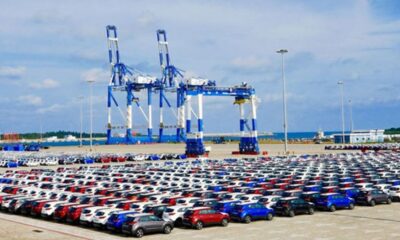Photo Story
Lotus Tower to open tomorrow (Pics)
Published
3 years agoon
By
editor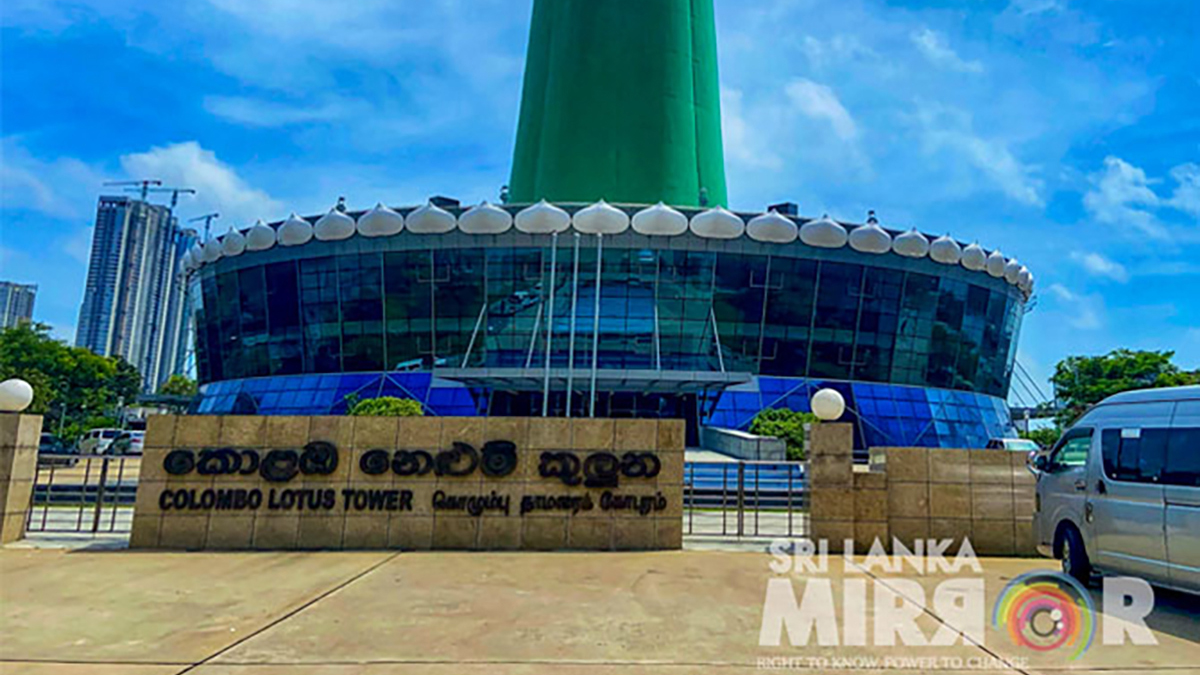
The Lotus Tower, dubbed as South Asia’s tallest structure, is to open its doors to the public tomorrow (15).
The 350-metre (1,155-feet) Lotus Tower, costing USD 113 million, is built with Chinese loans.
Speaking to the media, Deputy Secretary to the Treasury and Chairman of the Lotus Tower Management Company (Pvt.) Ltd. – Mr. R.M.P. Ratnayake said that after the business activities at the tower are initiated on Sep. 15, the tower will be opened to the public later in the same day after 2.00pm.
The tower will be open to the public from 2.00pm – 10.00pm on weekdays and from 12.00 noon – 11.00pm on weekdays. According to the company, the tower is to be lit up from 7.00pm – 10.00pm on weekdays and from 7.00pm – 11.00pm on weekdays.
Tickets
Tickets are priced at Rs. 500 and Rs. 2,000 for adults. The Rs. 500 ticket is for visiting as a part of a group while a Rs. 2,000 ticket would enable the ticket holder to proceed without no waiting and without having to join other visitors in groups. Tickets for children aged below 10 years are priced at Rs. 500. However, schools are able to contact the management for pre-booked school tours from Oct. 01 ( 0742012354 / 0742012357). A ticket for a schoolchild on a school tour will be priced at Rs. 200. Tickets for foreigners are priced at USD 20.
Opening in 3 stages
Speaking, CEO of the Lotus Tower Management Company- Maj. Gen. (Retd.) Prasad Samarasinghe said that the tower will be opened in three stages.
Noting that keeping the tower closed will only add to the financial losses of the tower, he said that the first stage will see the opening of the observation deck. Visitors will be able to enjoy a 360 degree view of Colombo city at the observation deck and join the entertainment events at the premises. All visitors will be allowed to the observation deck only once and will be allowed to remain there for 1/2 hour. Also, only around 150 visitors will be allowed at the deck at the same time.
The second stage, expected to follow in another couple of months along the line, will see the additions of a digital art museum, E-sport arena, digital banks, innovation centres, and a 30m high water show on the Beira Lake, the company said. The second stage would also see a change from the physical ticket to a QR code ticketing system. The company also hopes to add telescopes to the observation deck to view famous local landmarks such as Sigiriya and Adams Peak towards the end of this phase.
In addition, a 9D cinema hall and a revolving restaurant is expected to be added to the attractions of the third stage which is expected in March 2023 and the company hopes to make the Lotus Tower a fully functioning business entity by then.
5G supported
The company also hopes to host adventure sports such as bungee jumping and skydiving in the future.
The tower also hosts 8 elevators, including three of the fastest elevators in Sri Lanka, which enables visitors from the ground floor to reach the observation deck on the 29th floor in just 49 seconds. It also includes office spaces, luxury suites, sky lounge, banquet halls, a revolving restaurant and a 9D cinema hall.
The company also says that Lotus Tower would be a 5G supported tower from Sep. 15.
The company
Mr. Ratnayake noted that the premises of the Lotus Tower is fully owned by the Telecommunications Regulatory Commission in Sri Lanka (TRCSL) and that the Lotus Tower Management Company is fully owned by the Treasury.
(Story & Pics : Shanika Jayasekara)
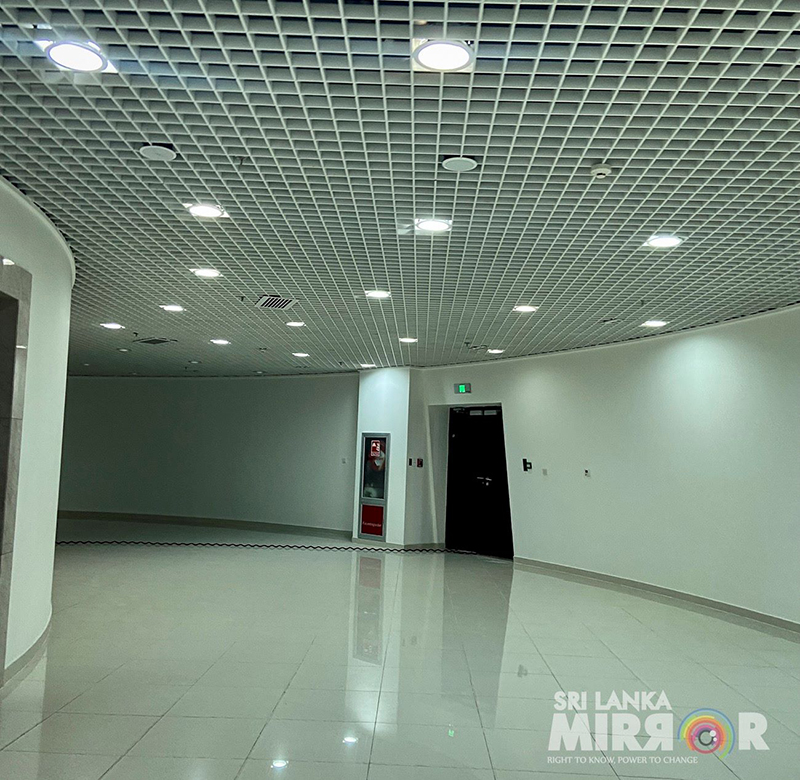
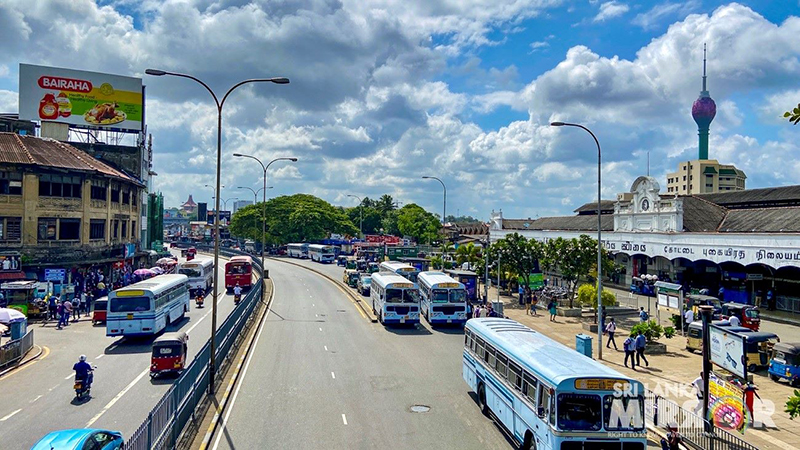
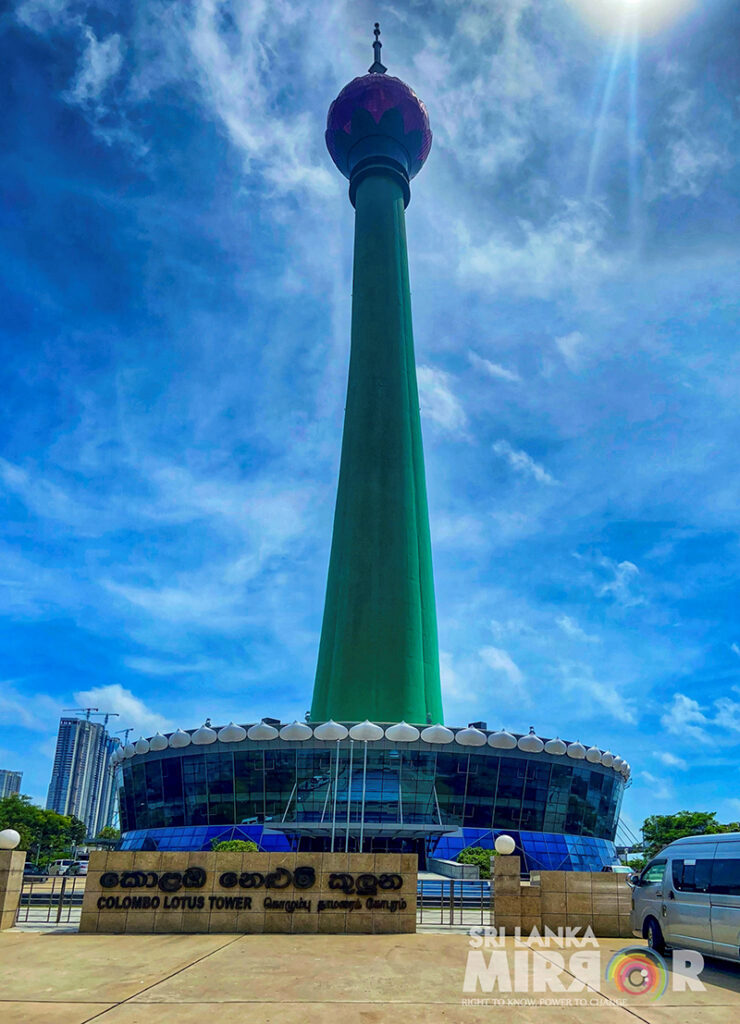
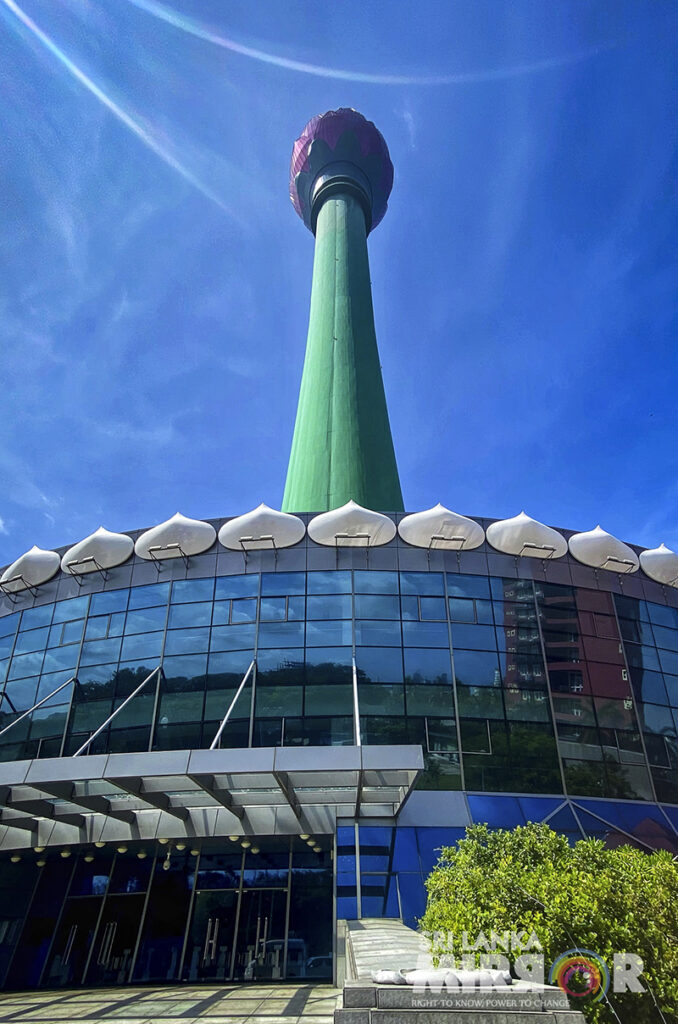
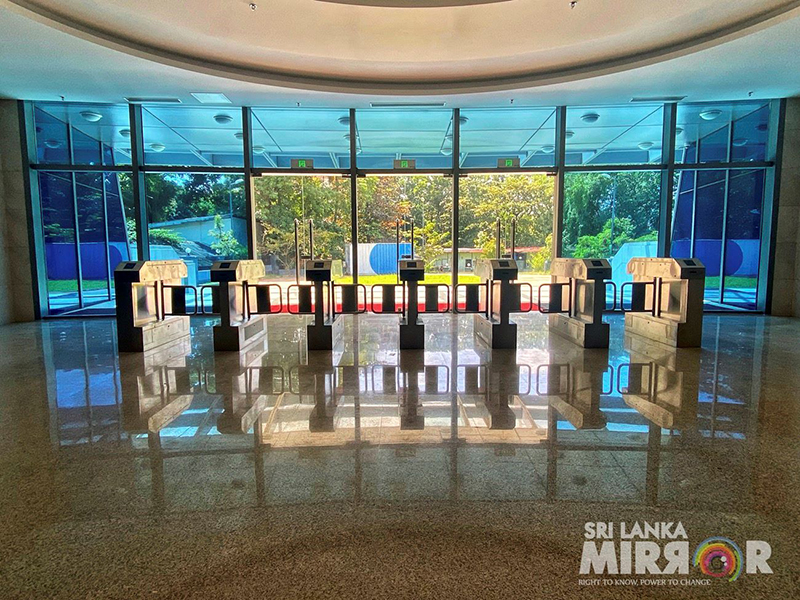

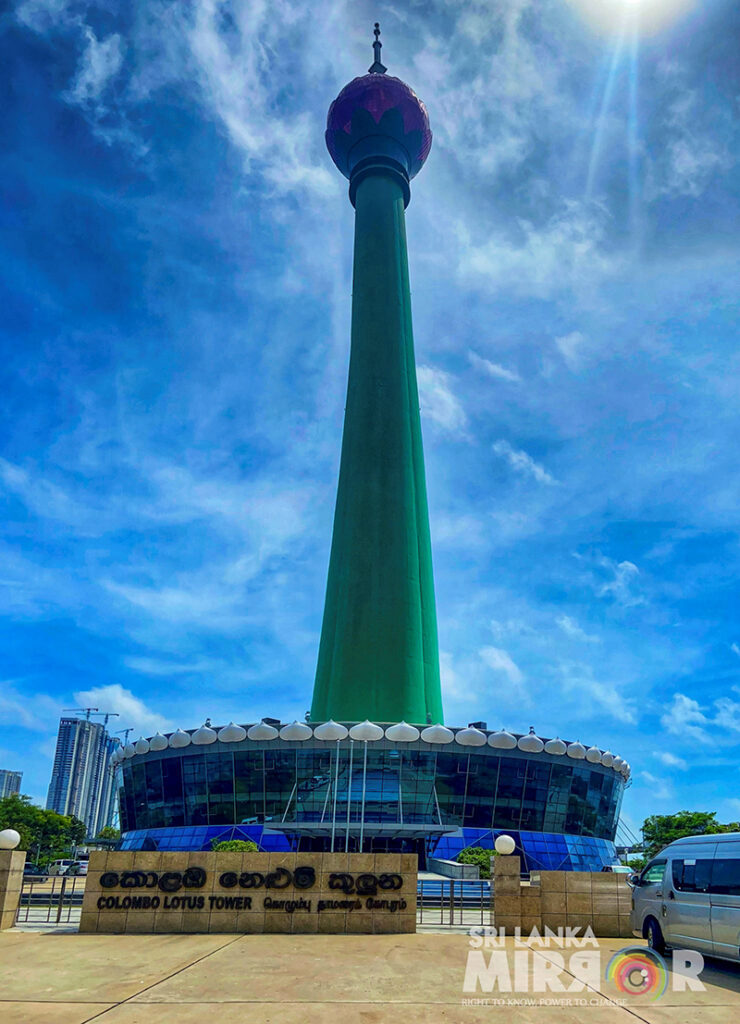
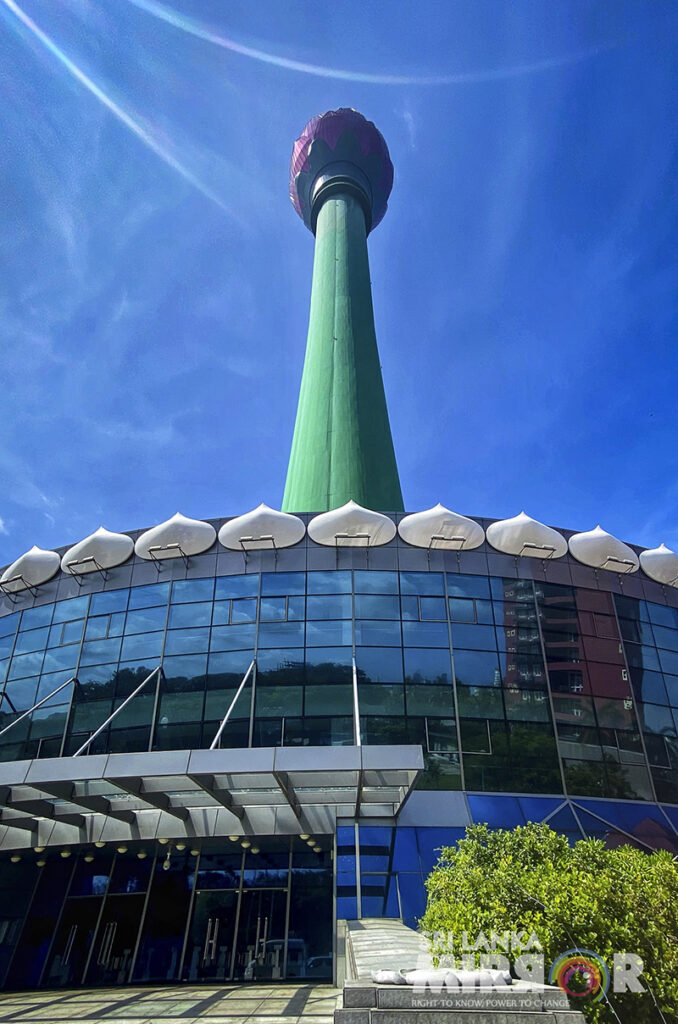


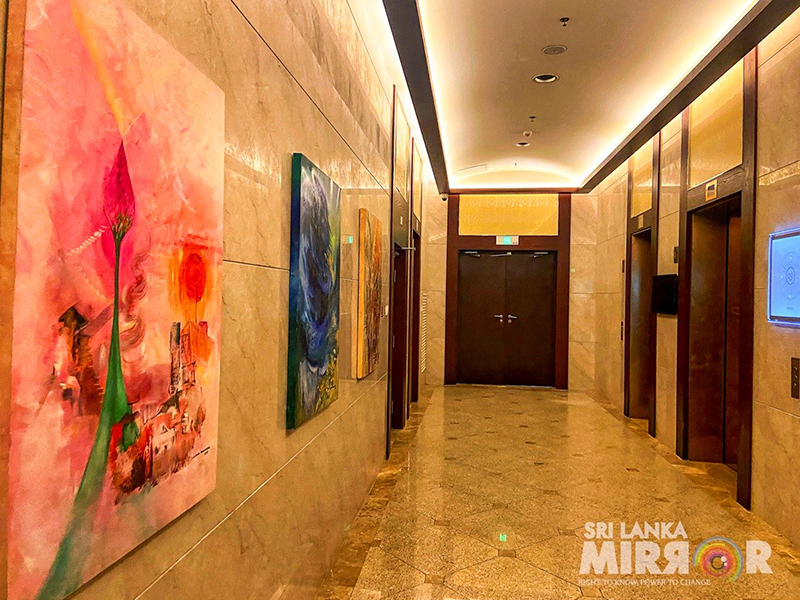
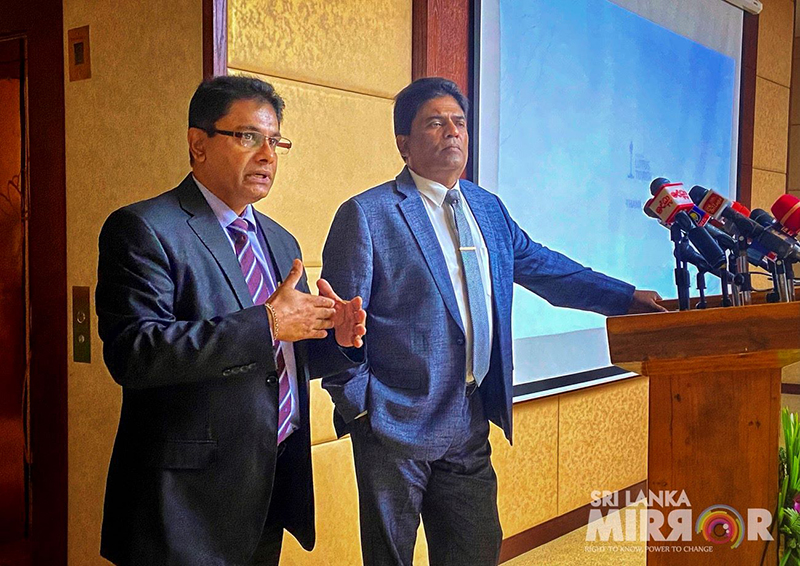

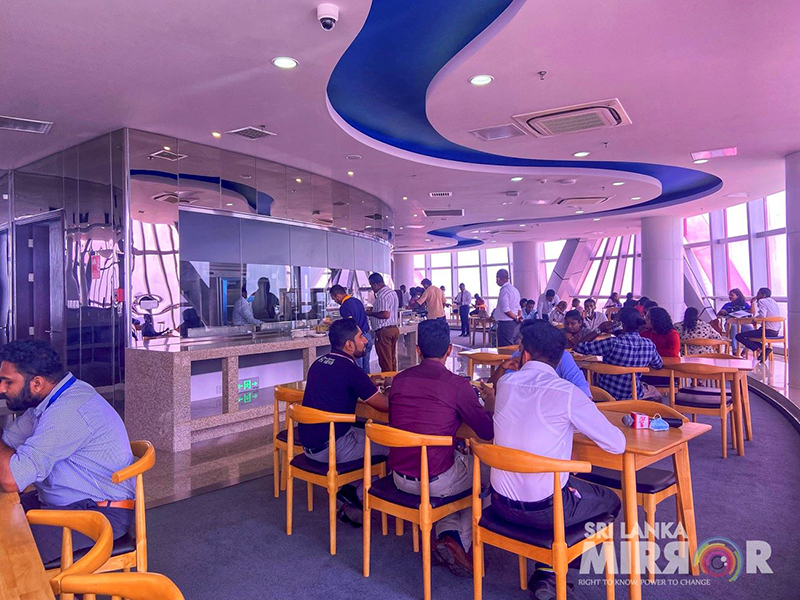
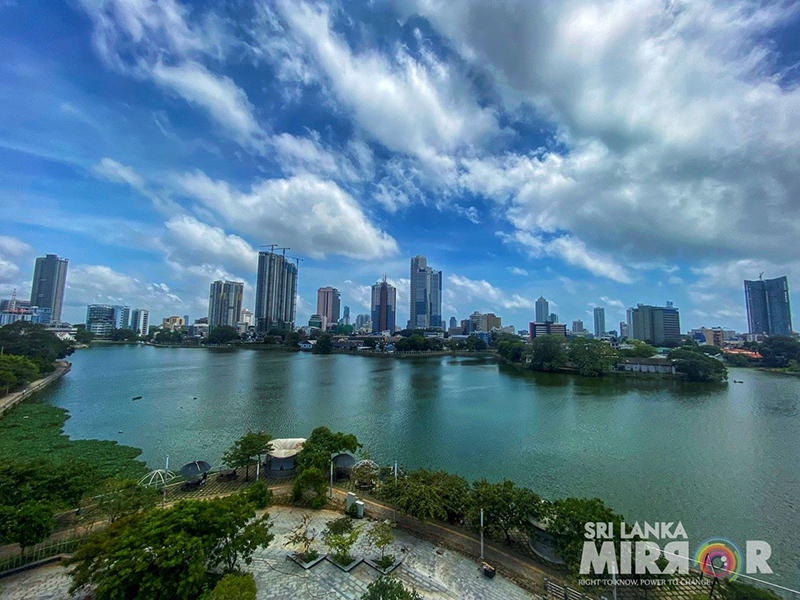
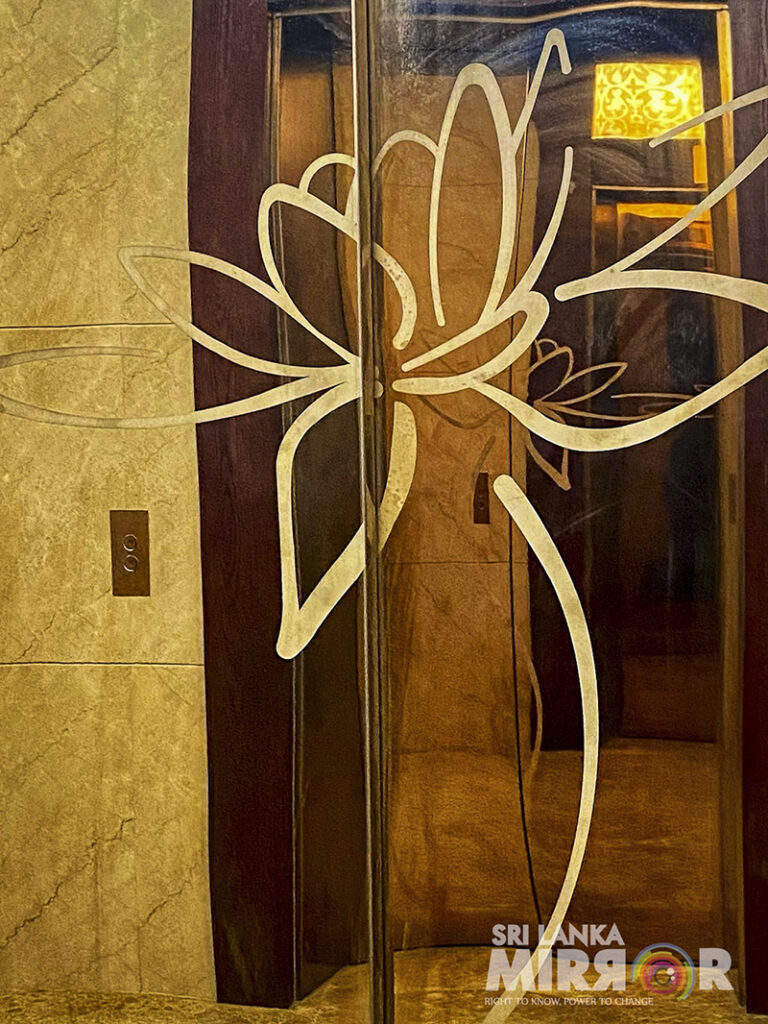
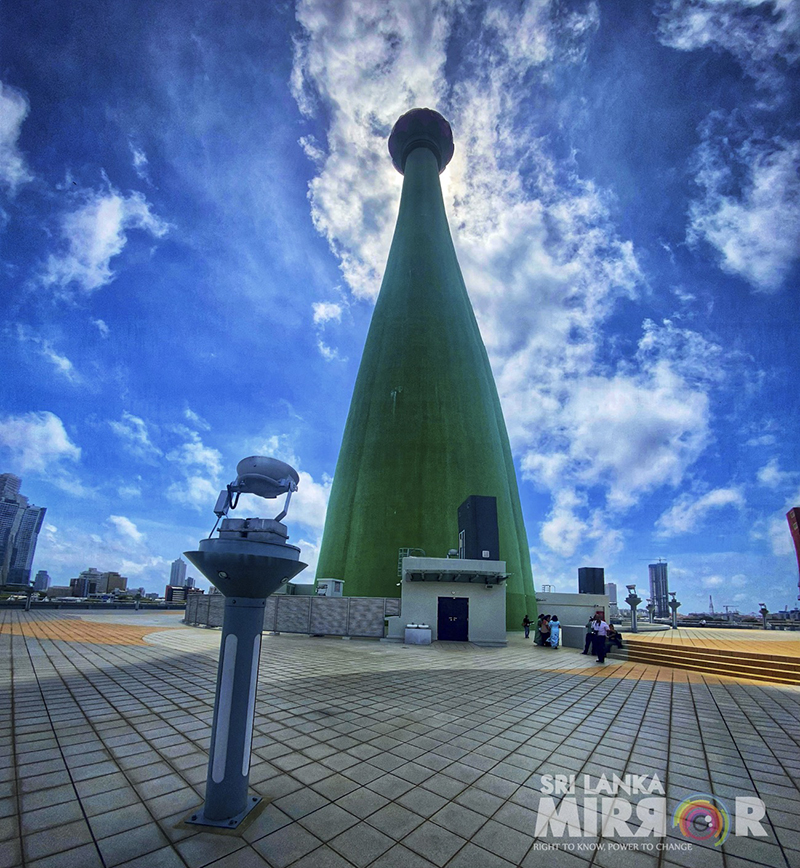
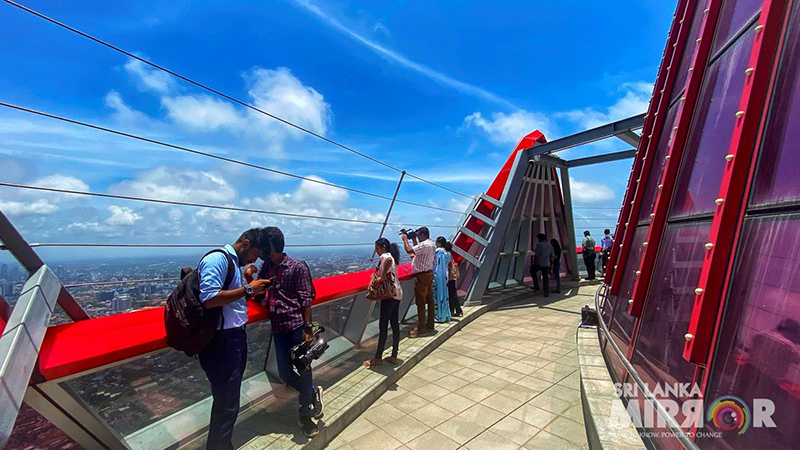
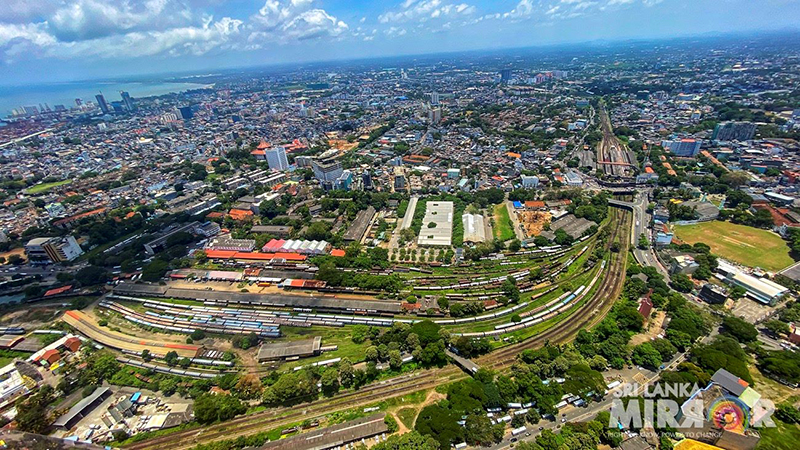
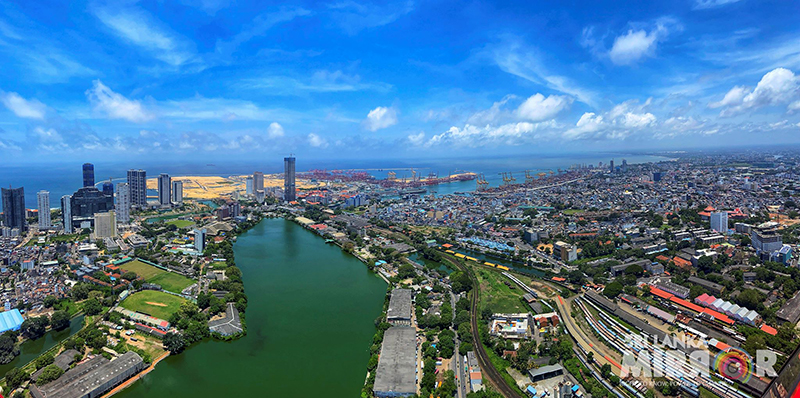
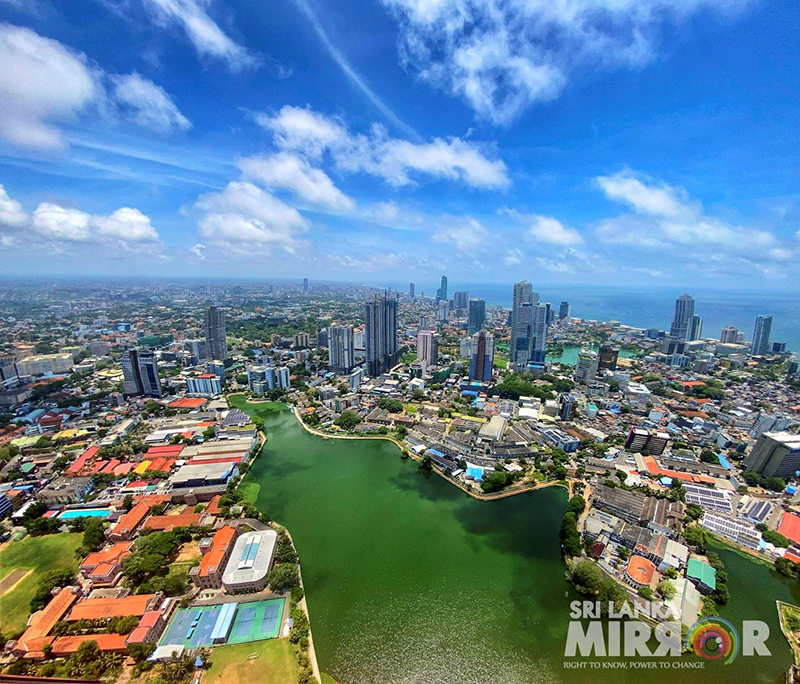
You may like
-


Gem & jewellery export revenue drops by 25% due to taxes!
-
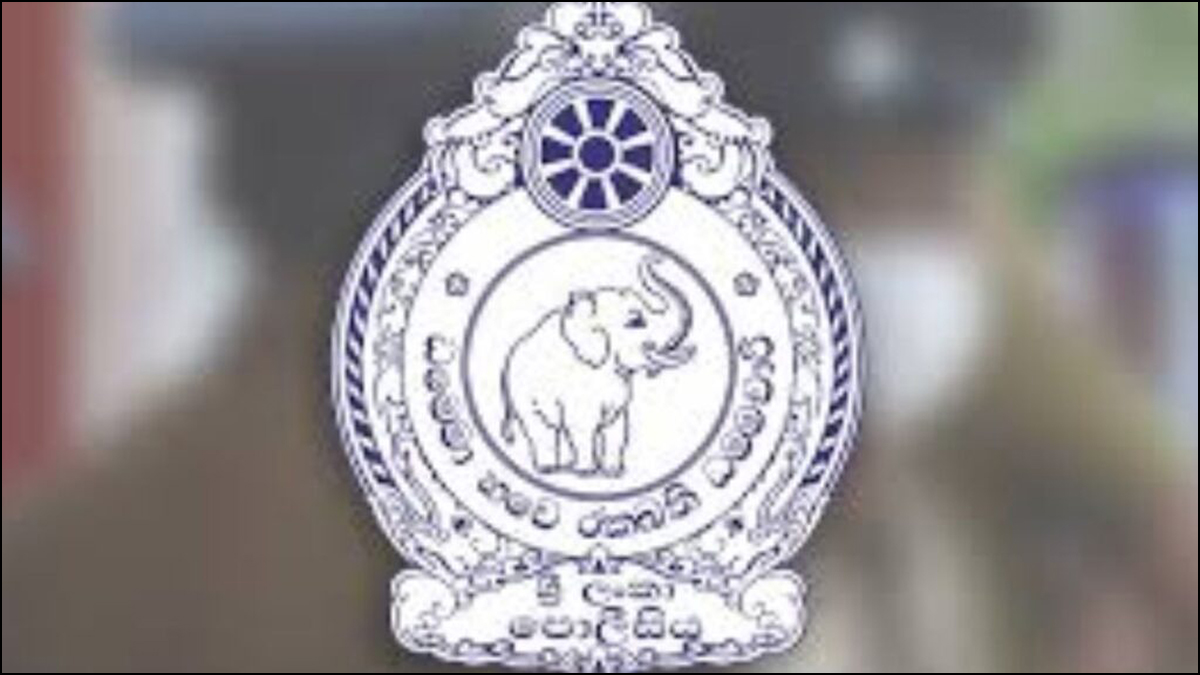

8 DIGs in India
-
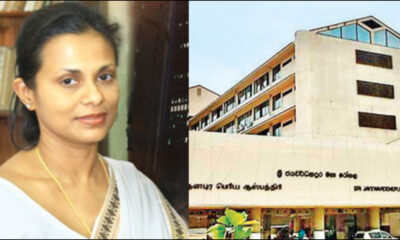

Consultant neurosurgeon further remanded
-
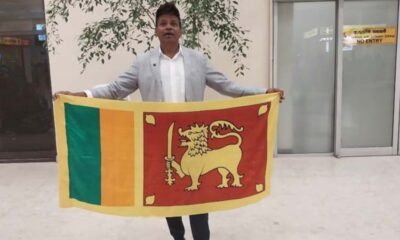

Johann Peries returns after conquering highest peaks of all continents
-
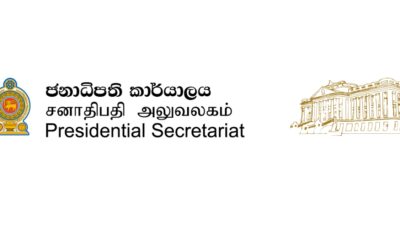

Presidential Secretariat declines to disclose names of PMD officials
-
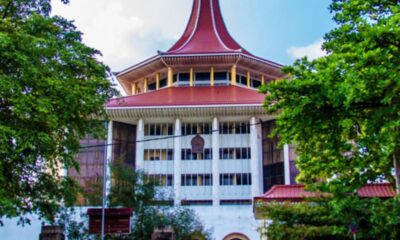

SC rules against Police after FR filed by 02 farmers
News
50th ordination anniversary of Malcolm Cardinal Ranjith, held (Pics)
Published
5 hours agoon
July 8, 2025By
editor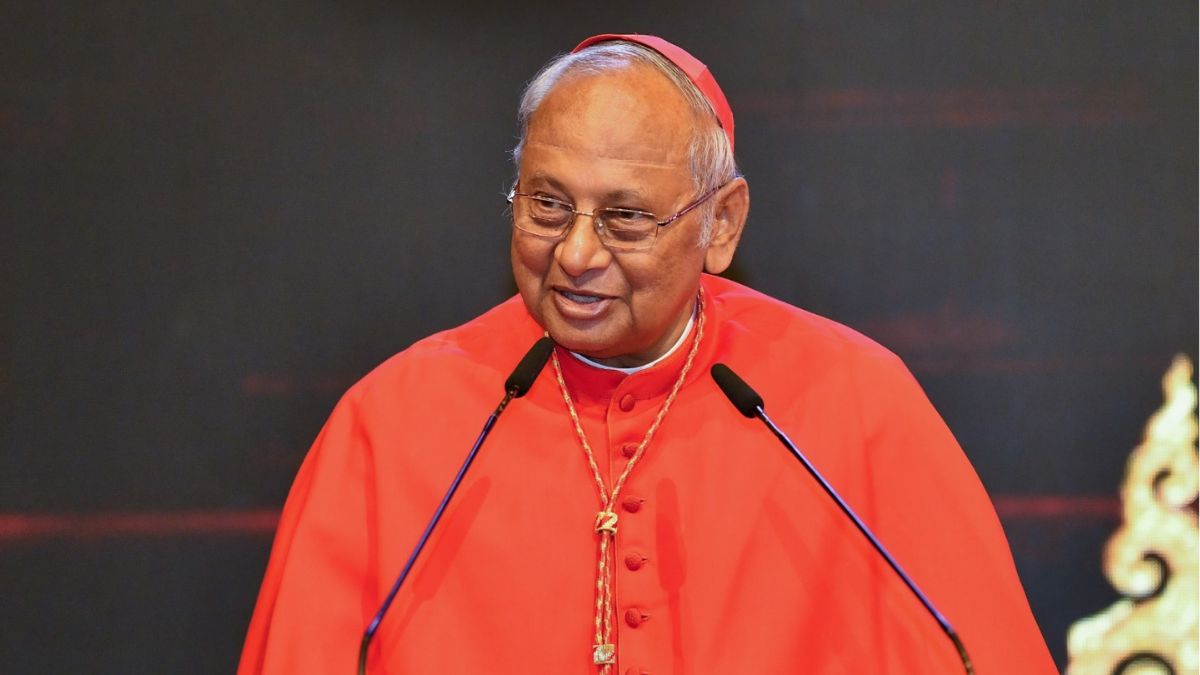
President Anura Kumara Disanayake stated that the life of His Eminence Malcolm Cardinal Ranjith serves as an exemplary model in an era when the moral and spiritual values of society are in decline.
The President made these remarks yesterday (July 07), delivering a speech at the felicitation ceremony organized by the Archdiocese of Colombo to mark the 50th Ordination Anniversary of His Eminence Malcolm Cardinal Ranjith’s sacred priesthood. The event was held at the Archbishop’s House in Colombo.
The President stated that His Eminence is deeply engaged in a tireless mission to uphold social harmony and spiritual upliftment. He is a statesman who has rendered a significant service to the country, a theological scholar capable of articulating the teachings of the Bible with clarity, a powerful orator with the ability to awaken society and above all, a true humanitarian whose influence extends beyond these roles.
The President further affirmed that every possible step will be taken to ensure justice for the victims of the Easter Sunday attacks, without allowing the passage of time to obscure the truth. He emphasized that this is a challenge the government must confront, even within its own institutions and no matter how difficult it may be, justice must be served.
Addressing the gathering, His Eminence Malcolm Cardinal Ranjith reflected on his 50 years of priestly service and commended President Anura Kumara Disanayake for his success in ending a 75-year era of autocratic rule. He also expressed appreciation for the President’s efforts to dismantle a political culture rooted in spreading division among ethnic communities and emphasized the need for a new approach as the country moves towards becoming a prosperous nation.
On this occasion, to mark the 50th Ordination Anniversary of His Eminence Malcolm Cardinal Ranjith’s priesthood, a commemorative stamp and first-day cover were officially presented to the President.
His Eminence Malcolm Cardinal Ranjith was born in 1947 in the Polgahawela area of Kurunegala. He was ordained as a priest on June 29, 1975, at St. Peter’s Basilica in the Vatican, by Pope Paul VI. Thereafter, he served in various roles including Assistant Parish Priest, Acting Parish Priest, Lecturer in theology and professor at the seminary. He is proficient in multiple languages including Sinhala, Tamil, English, German, French, Spanish and Indonesian.
In 1991, under the leadership of then-Archbishop His Eminence Nicholas Marcus Fernando, he was appointed as Auxiliary Bishop of the Archdiocese of Colombo, with his episcopal ordination taking place at the Basilica of Our Lady of Lanka in Tewatte.
Subsequently, on June 16, 2009, Malcolm Ranjith was appointed as the Archbishop of the Archdiocese of Colombo. A year later, on November 20, 2010, he was elevated to the rank of Cardinal at the Basilica of Saint Lawrence in Italy. With this appointment, His Eminence Malcolm Cardinal Ranjith became the second Sri Lankan to receive the blessing of holding the title of Cardinal. He has held numerous positions both nationally and internationally, including serving as chair of several international assemblies.
His Eminence has been the recipient of numerous international accolades, including the Thomas Aquinas Medal for Religious Studies awarded by the Thomas Aquinas College in the United States and the 7th Giuseppe Sciacca International Award for Cultural Achievement, conferred in 2008 by the President of the Italian Republic. A respected writer as well, he has contributed a multitude of articles to journals and newspapers.
Ven. Anunayaka of the Malwathu Chapter, Most Venerable Niyangoda Vijithasiri Thero and Ven. Dr. Omalpe Sobhitha Nayaka Thero extended their wishes during the occasion.
The event was also graced by the Maha Sangha of the three Nikayas, religious leaders from all faiths, President of the Catholic Bishops’ Conference of Sri Lanka, Bishop Harold Anthony Perera, the Charge de Affairs of the Apostolic Nunciature Msgr. Roberto Lucchini, Auxiliary Bishops of Colombo Most Rev. Maxwell Silva and Most Rev. Anthony Jayakody, other Catholic clergy, Prime Minister Dr. Harini Amarasuriya, Opposition Leader Sajith Premadasa, several Ministers and Members of Parliament, Commanders of the Tri-Forces, the Acting Inspector General of Police, Ambassadors and many other distinguished invitees.
(President’s Media Division)
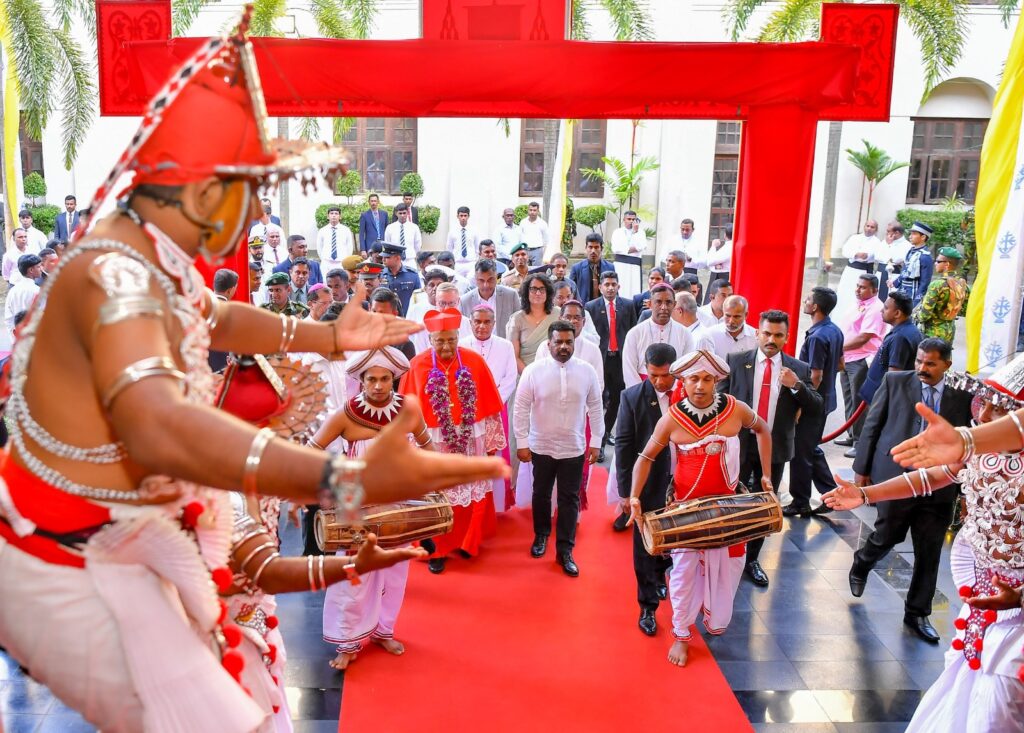
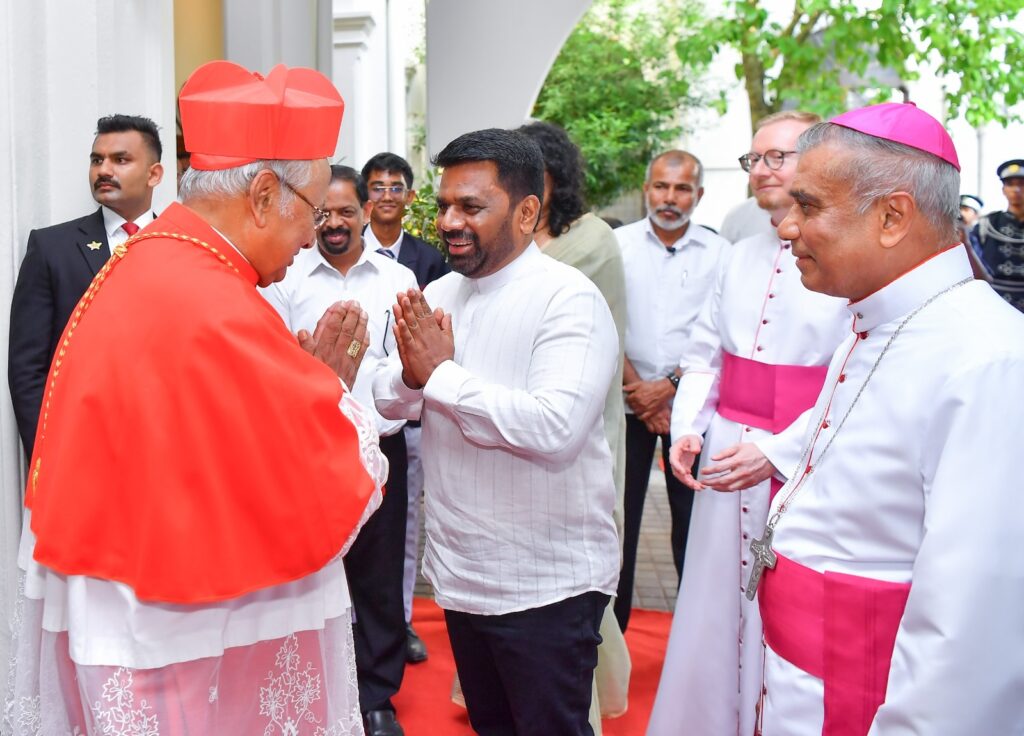
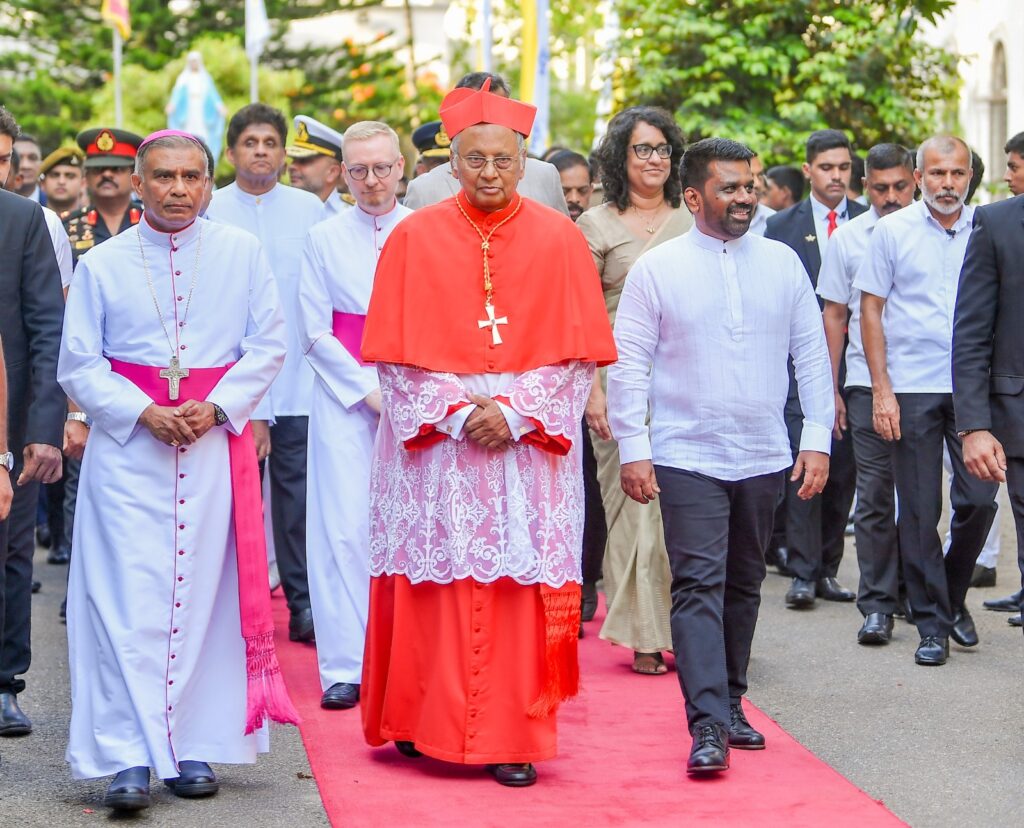
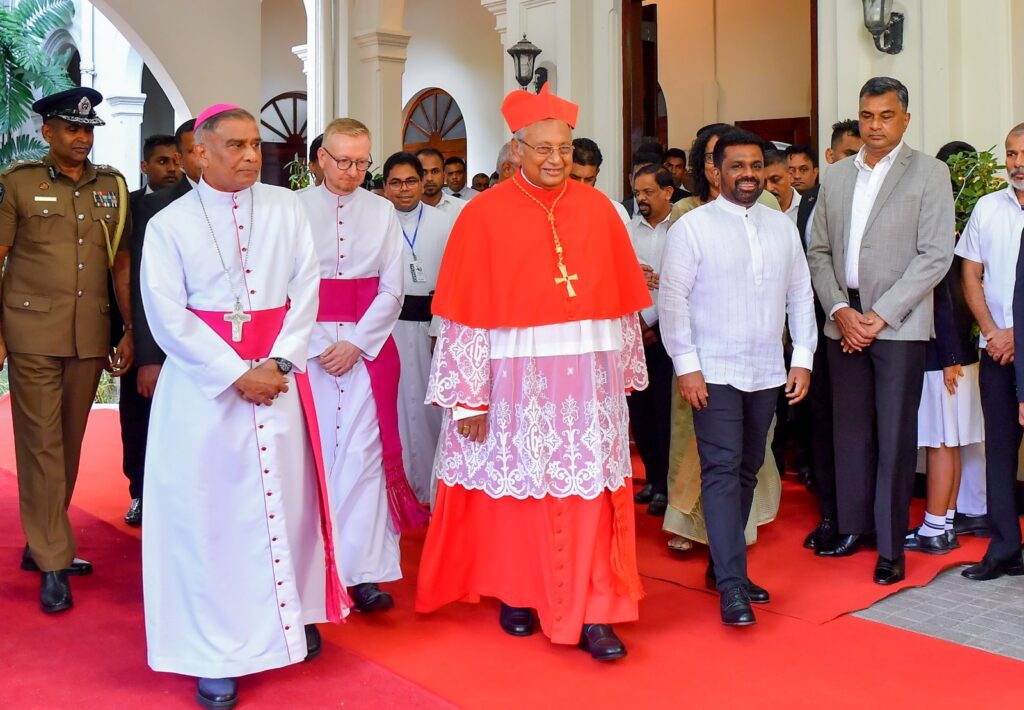
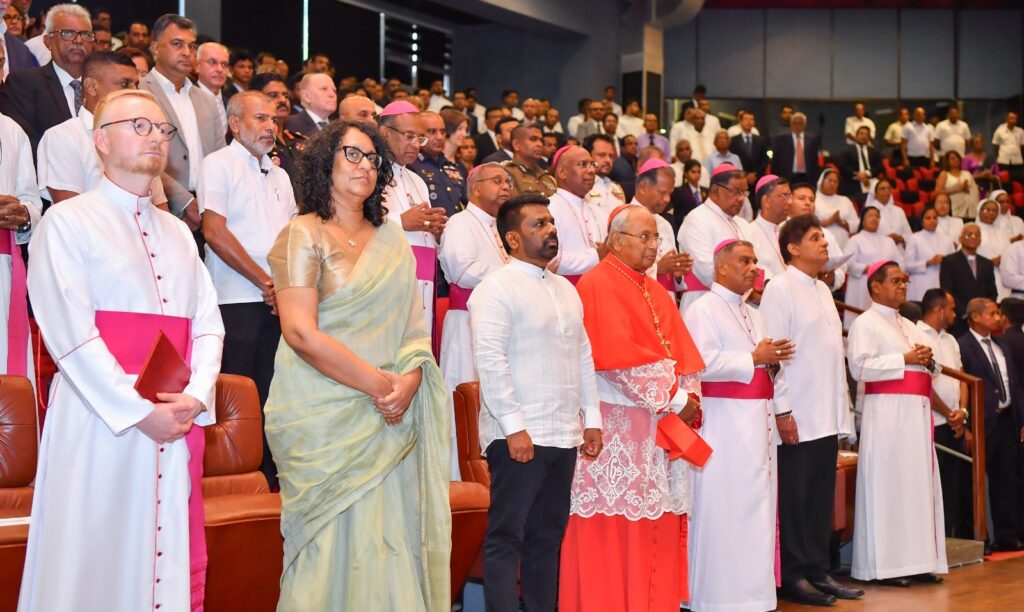
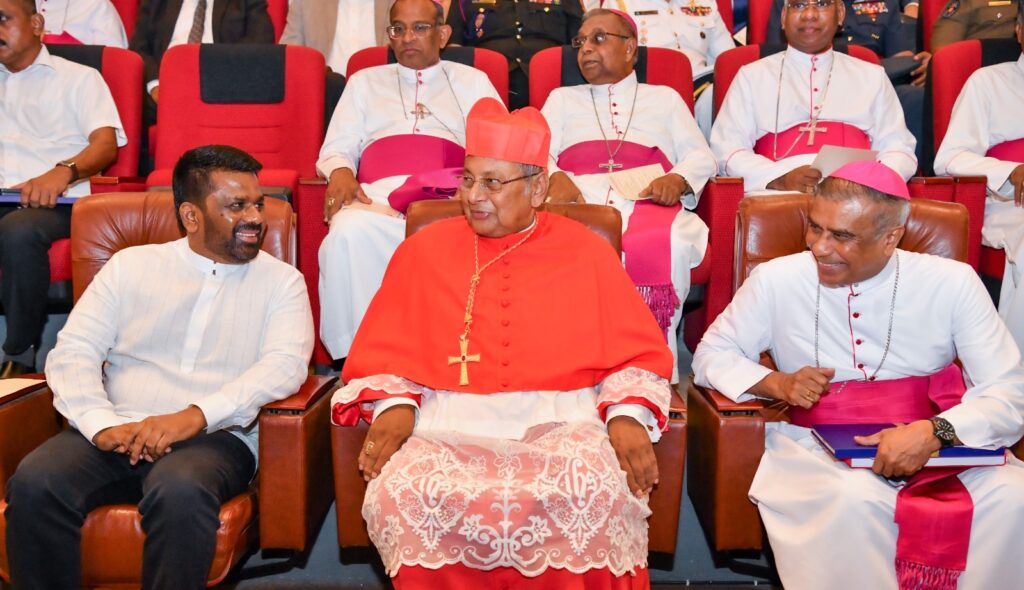
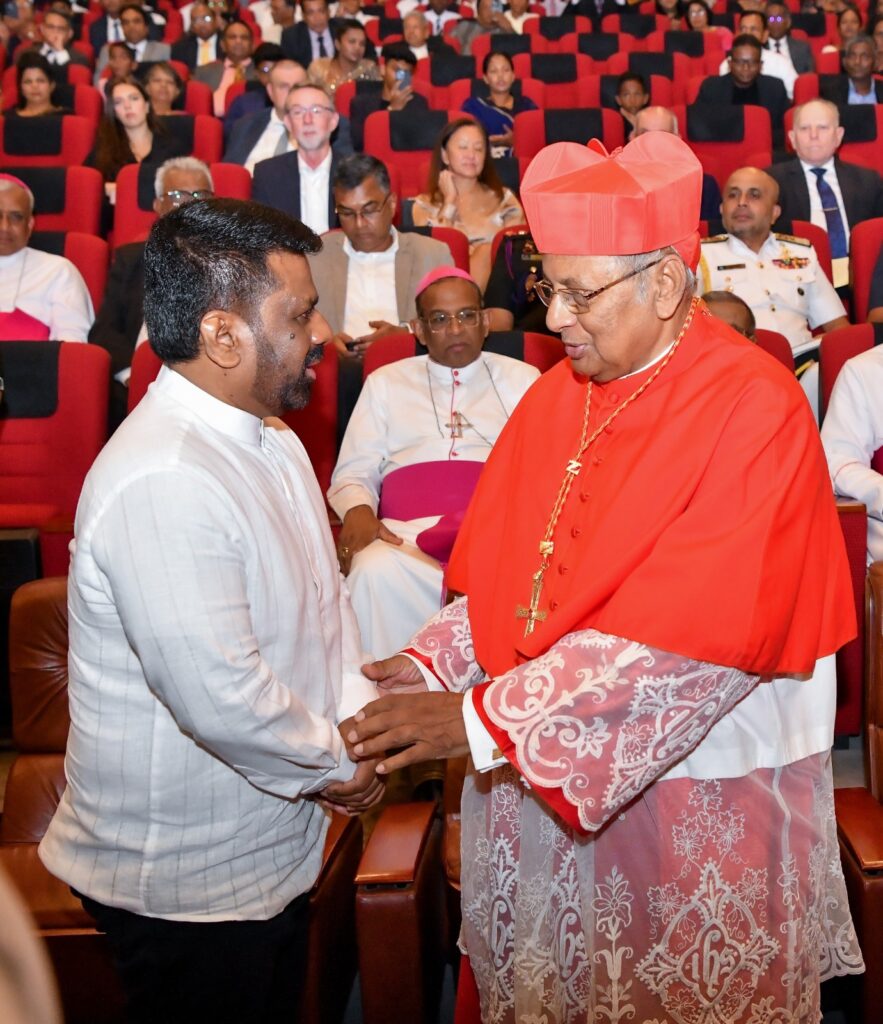
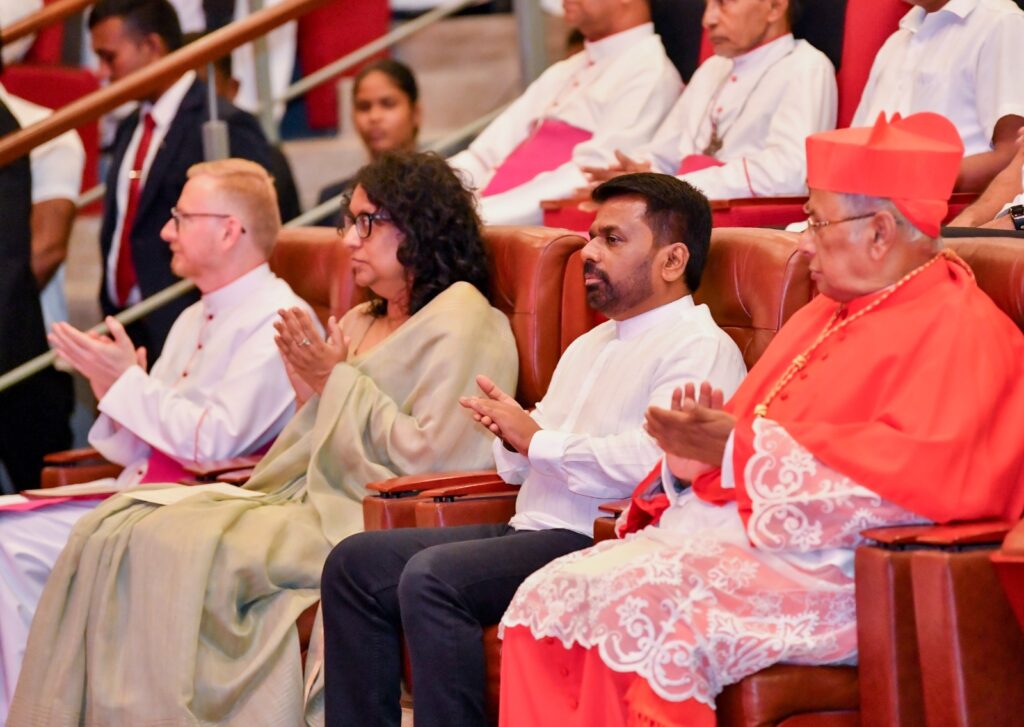
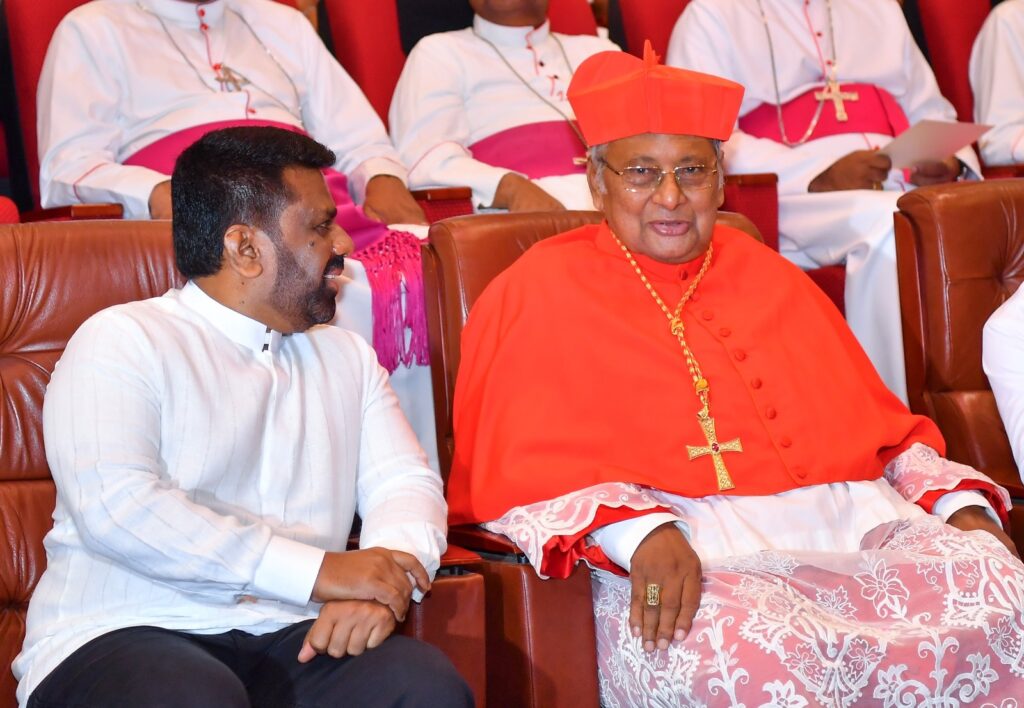
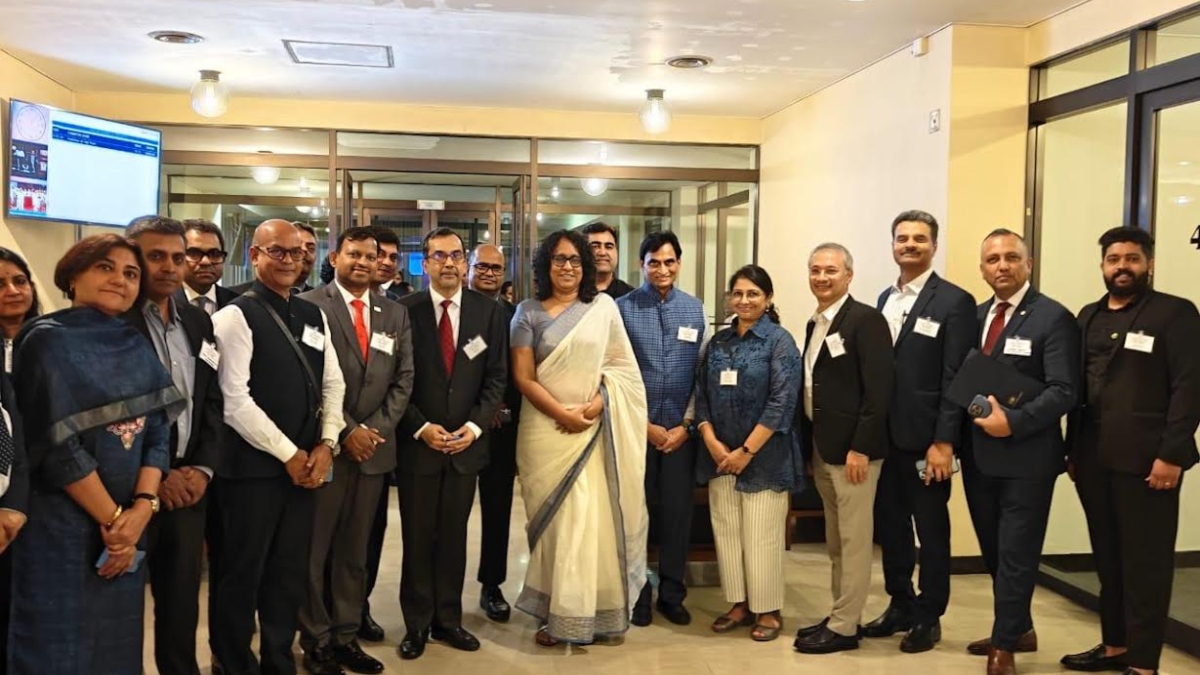
A CEOs delegation of the Confederation of Indian Industry (CII), led by Mr. Sanjiv Puri, Immediate Past President, CII and Chairman & Managing Director of ITC Limited, visited Colombo from 29 June to 02 July 2025.
The visit followed an invitation extended by the President of Sri Lanka during his State Visit to India in December 2024. The delegation comprised over 15 prominent Indian business leaders representing diverse sectors including hospitality, manufacturing, energy, healthcare, textiles, and tourism, among others.
During the visit, the CII delegation also called on the President and the Prime Minister of Sri Lanka. The leadership briefed the Indian business representatives on the constructive measures undertaken by the government to foster a supportive economic climate, promote investment, and ensure fair and transparent business practices.
In addition, the delegation held wide-ranging discussions with several senior Ministers and officials of the Government of Sri Lanka, including the Minister of Energy; Minister of Industry and Entrepreneurship Development; Minister of Labour and Deputy Minister of Economic Development; Minister of Trade, Commerce, Food Security and Cooperative Development; and the Chairman of the Board of Investment of Sri Lanka. These discussions explored avenues for investment-led collaboration and sector-specific partnerships.
A key highlight of the visit was a CEOs’ Roundtable organised by the High Commission of India on 30 June at ITC Ratnadipa, in collaboration with the Ceylon Chamber of Commerce (CCC). The CCC delegation was led by Mr. Krishan Balendra, Chairman and CEO of John Keells Group. The Roundtable witnessed in-depth deliberations on strengthening bilateral economic cooperation and identifying new opportunities for collaboration. High Commissioner of India to Sri Lanka – Mr. Santosh Jha also participated in the interaction.
To mark the occasion, the High Commissioner hosted a networking reception that brought together prominent business leaders, senior ministers, and political leaders. The event also witnessed the participation of leading trade and industry chambers from across Sri Lanka.
The visit of the CII CEOs delegation successfully identified various areas of mutual interest for forging further economic linkages and trade connections. It also highlighted the commitment of apex Indian chambers of commerce, such as CII, to deepening existing economic ties, promoting investment-led partnerships, and exploring new avenues for collaboration between India and Sri Lanka.
The delegation included :
- Dr Nandini Rangaswamy – Chairperson, GRG Educational Institutions & Managing Director, Chandra Group of Companies
- Dr S Chandrakumar – Founder & Executive Chairman Kauvery Group of Hospitals
- Mr CK Ranganathan – Chairman & Managing Director CavinKare Pvt Ltd
- Mr G R Anantapadmanaban – Managing Director GRT Group
- Mr VKC Razak – Chairman, CII Kerala State Council & Managing Director of VKC Footgear Pvt. Ltd.
- Mr Dipak Das – Managing Director Lanka IOC PLC
- Mr Christo George – Convenor CII Kerala Manufacturing MSME & Export Panel, Chairman and Managing Director of Hykon India Limited
- Mr Sohel Firoz Kazani – Founder and Managing Partner of Interport Impex Private Limited (Bharat Freight Group)
- Mr Sunin Sunny – CEO of Ecospice Ingredients Pvt Ltd.
- Mr Ravi Dolli – Member, CII Maharashtra Manufacturing Panel & CEO of Alloy Steels
- Mr Rahul Nayak – Head of International Business TVS Motor Company
- Ms Neerja Bhatia – Deputy Director General Confederation of Indian Industry
- Mr Saikat Roy Chowdhury – Executive Director of International Confederation of Indian Industry
- Mr Manish Mohan – Senior Director of International Confederation of Indian Industry
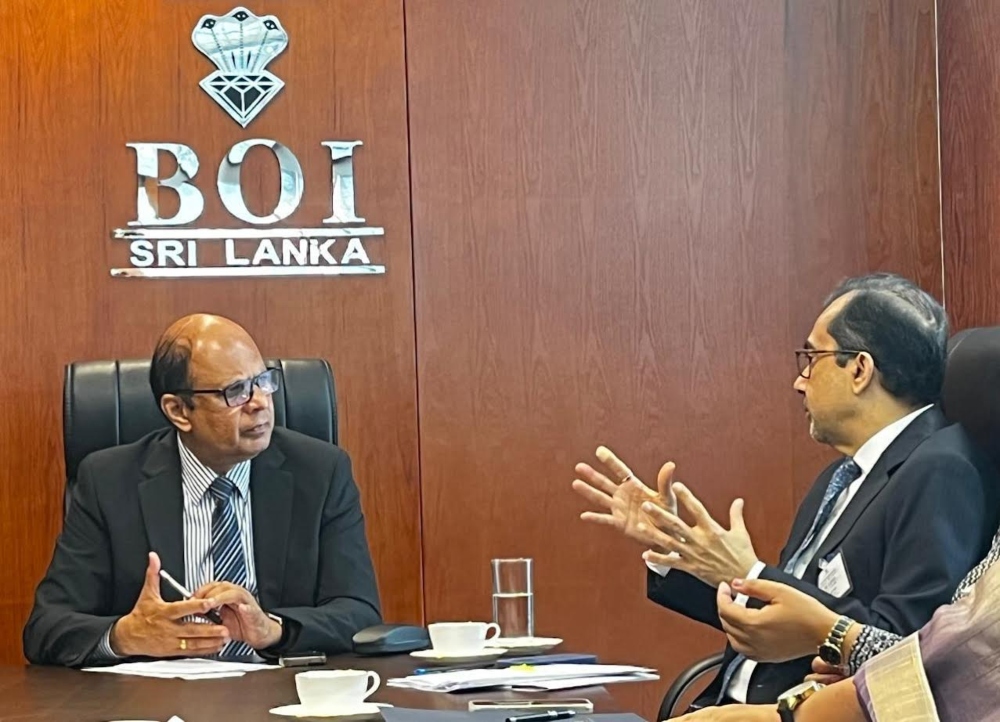
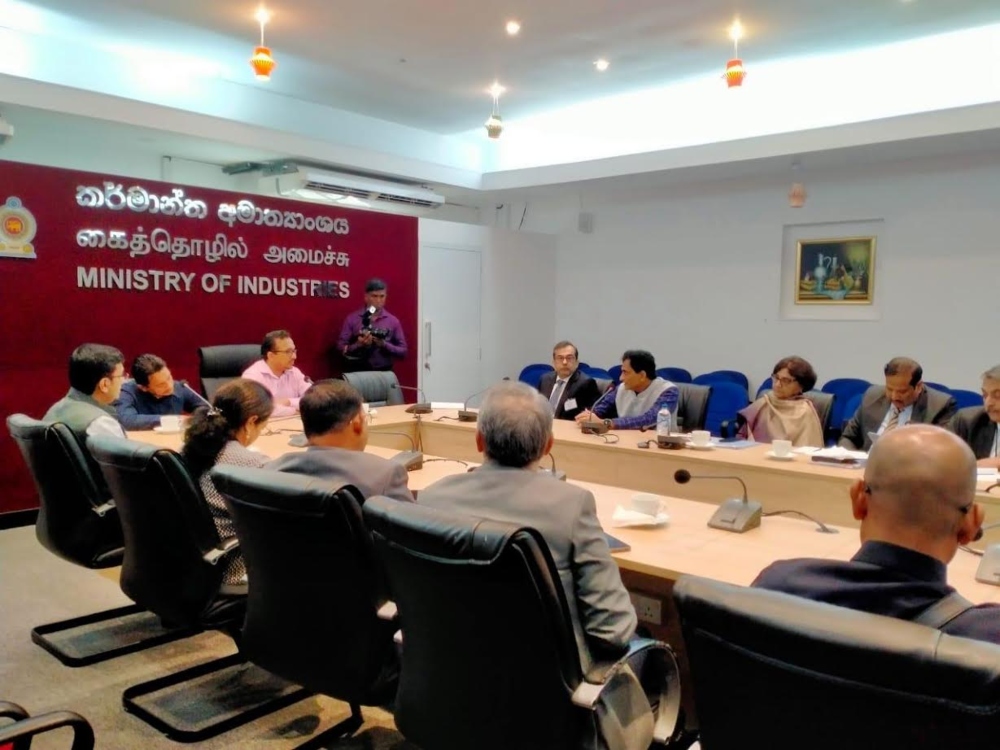
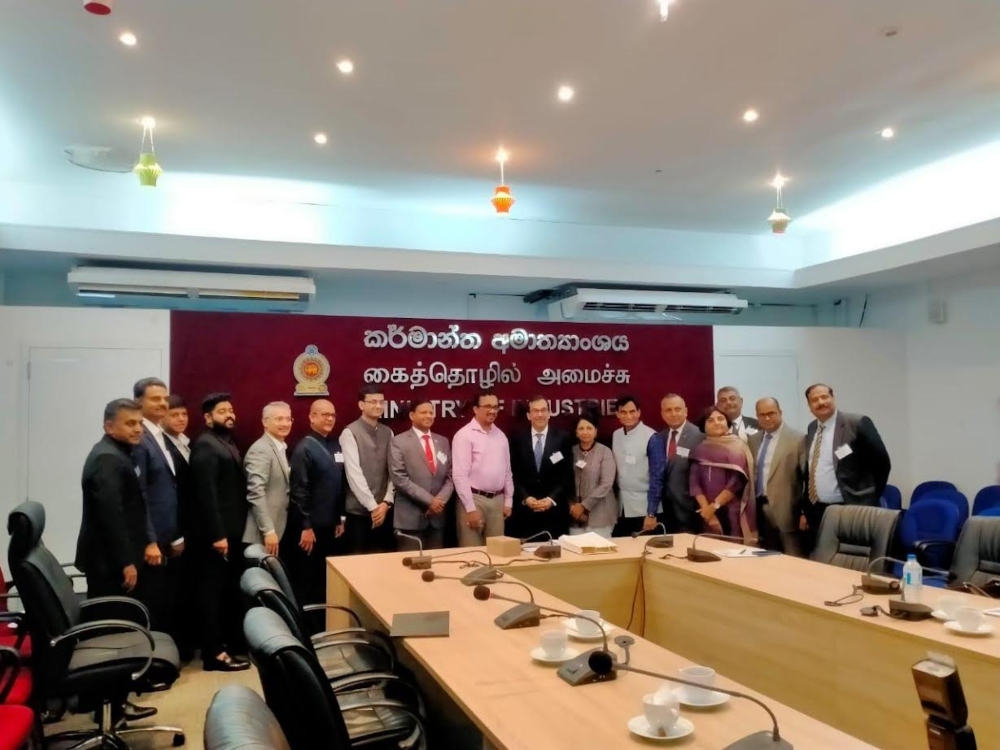
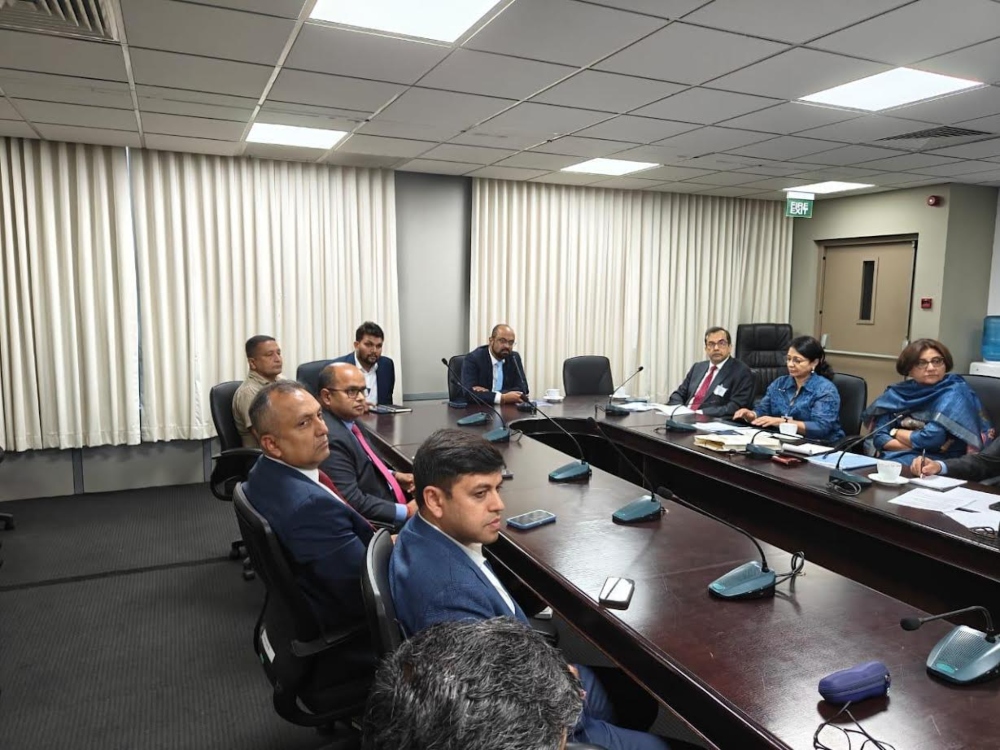
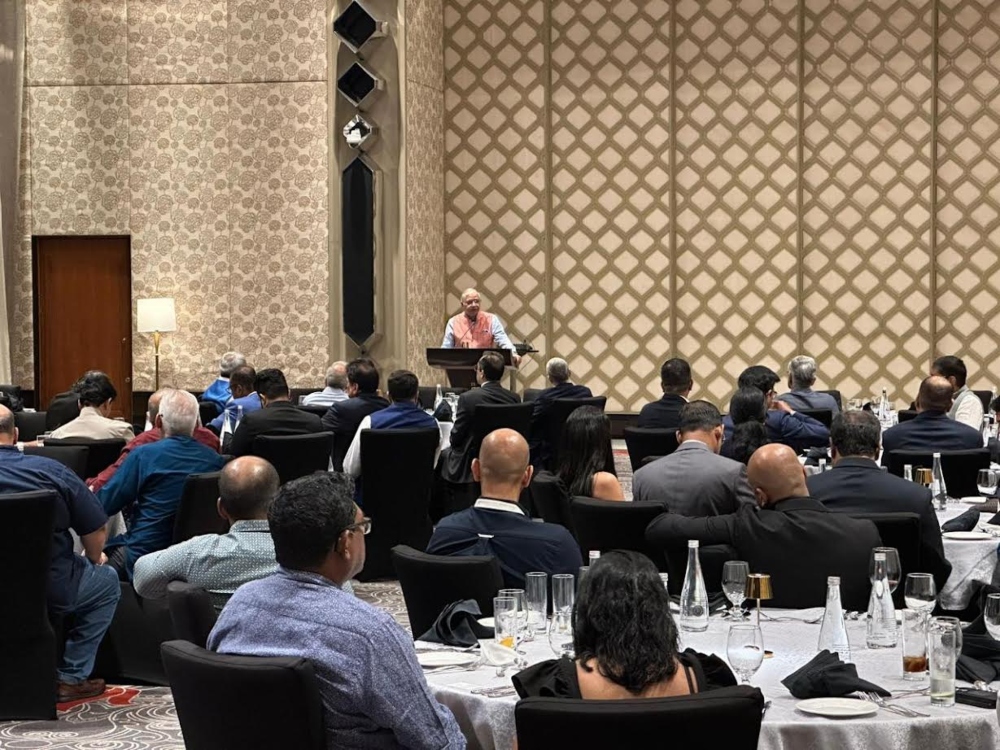
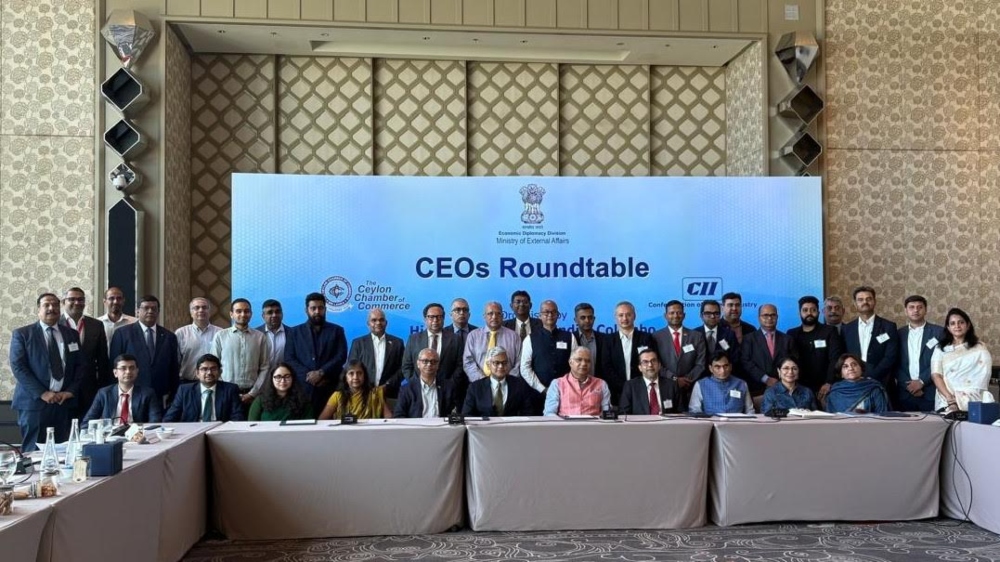
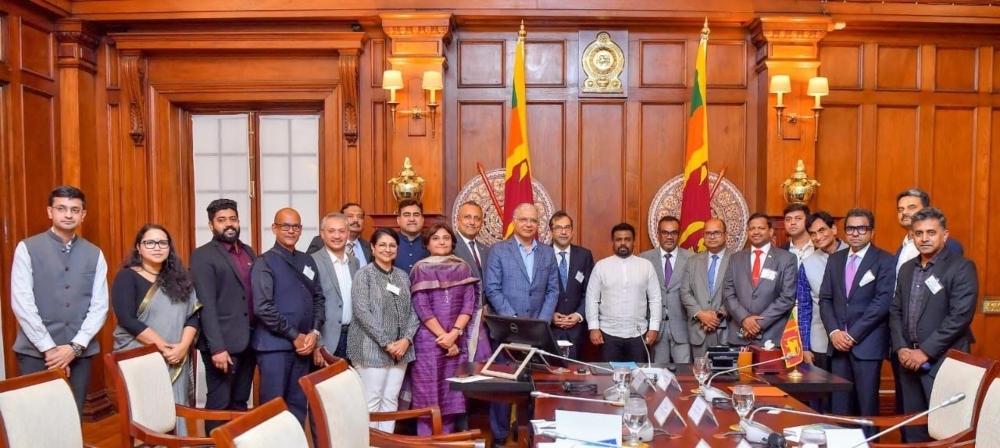
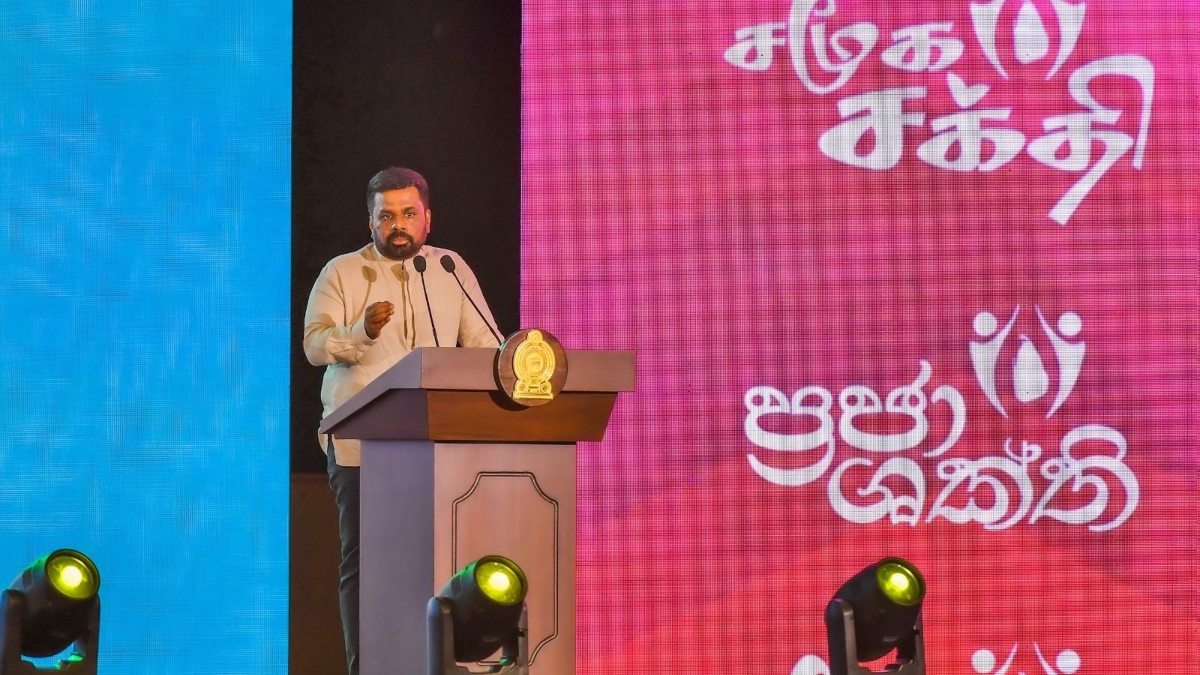
President Anura Kumara Disanayake emphasized that no matter the extent of economic growth reflected in statistics, if the advantages of this growth do not extend to the rural communities, then such growth holds no significance. The President further stated that while it is important to achieve national economic growth, it is equally essential to expand the economy in a way that creates opportunities for rural communities and makes them active participants in the economic process. He stated that this is a responsibility of the government.
The President made these remarks today (04) attending the launch of the “Prajashakthi” National Programme held at Temple Trees.
The “Prajashakthi” National Programme has been launched as a key initiative of the current government, aiming to empower communities and ensure the fair distribution of economic benefits across society.
The Secretary to the Ministry of Rural Development, Social Security and Community Empowerment, Mr. Sampath Manthrinayake, welcomed participants to the programme. The Secretary to the President, Dr. Nandika Sanath Kumanayake outlined the objectives of the initiative.
Following this, the Chairman of the “Prajashakthi” National Operations Committee and Minister of Rural Development, Social Security and Community Empowerment, Dr. Upali Pannilage, introduced the national movement.
The official “Prajashakthi” website was also launched by President Anura Kumara Disanayake during the event.
The Full Text of the Speech delivered by President Anura Kumara Disanayake:
A few years ago, our country experienced a severe economic collapse. While there were various contributing factors to this collapse, we must not forget that ordinary people in rural areas, who played no part in its cause, endured the greatest hardships.
They were affected in areas such as food affordability, access to quality healthcare, educational opportunities and the development of rural infrastructure. Therefore, the present government has both a responsibility and a challenge to uplift rural lives. This is a duty that cannot be abandoned.
One of the top priorities of our government is to eradicate rural poverty as a key step towards national progress.
Today, we have managed to bring the economy to a relatively stable state. We have maintained the dollar’s value close to Rs. 300, steadily raised foreign reserves, directed treasury revenue to meet our goals and reduced interest rates to single digits. These are notable indicators of economic stability. We have also been able to gradually restore investor confidence in the country.
Numerous stalled projects have been successfully renegotiated and restarted. In addition, we have received a substantial number of proposals for new investment projects, many of which were approved at the recent Cabinet meeting. Therefore, our focus is now on new investments and development projects. Through these effective and results-driven investments, we can simultaneously achieve economic stability and economic growth.
However, if these economic benefits do not flow to the rural population, then even achieving growth in statistical terms is insufficient. This is why we must pursue economic growth on one hand and economic expansion on the other. If rural people are not given economic opportunities and included as stakeholders in the economy, they will become marginalised. Our core approach must therefore be to expand the economy and integrate rural communities into it.
This is possible only if the current rural economic activities are transformed into more productive, efficient and profitable ventures. These sectors should be developed to become thriving businesses. Widening their access to economic opportunities is also vital. Hence, we are prioritising the creation of new economic avenues for the rural population, making them active players in the economy.
Poverty has gone beyond being an economic issue and become a deep-rooted social problem. Poor communities have become isolated from society. Therefore, eliminating rural poverty is one of the government’s primary responsibilities. Education plays a key role in this. There is a direct correlation between poverty and lack of education. Thus, we must expand educational opportunities further. Despite all efforts, every society has a segment of people who will face difficulties. Even in so-called developed nations, such communities exist. A welfare system is required to support these groups.
Welfare is not inherently a bad tool. If a population is vulnerable at a given time, it is the government’s responsibility to protect them. However, welfare has often been misused, turning into a political tool. This has led to growing criticism of such programmes due to their politicisation.
Our policy under the National People’s Power government is to provide targeted welfare. Assistance must be given to the right people for the right reasons. I believe the government holds this responsibility and society must also understand its importance. In our society, there is a belief that anything given by the state must be received by all. That is a mistaken belief. Our state is not built on such a culture of entitlement. Our culture is to protect those who need protection. Because of distortions in past practices, those who don’t need aid often compete to obtain it, making it harder to support those who truly do.
We must therefore foster a new culture. People must be self-aware enough to recognise whether they truly deserve government support. Even if you have the ability, the person next door mat doesn’t have that ability. It is essential to cultivate a sense of responsibility to assist others. But today’s mentality is to claim whatever is available, regardless of whether one needs it or not. This is the reason we strive to create a strong data system, ensuring that support is provided solely to those who truly require it.
However, we all know that a society cannot rely forever on welfare programmes. There will always be a need for welfare systems, but they must not serve the same individuals or communities indefinitely. Others too must be enabled to become contributors to the economy.
Significant government funds have been expended for this purpose. Approximately, Rs. 230 billion has been allocated solely for the ‘Aswesuma’ programme. Large sums of money have also been spent on other aid programmes. However, have these funds reached the targeted communities? Have the intended benefits been realised from these funds? The answer is no.
Various international organisations implement aid programmes in this country. Looking at these, more than 50% of the expenditure goes towards establishing the mechanism for delivering the aid. An official waits to see how they can personally benefit from a project once it is received. They have their job, but the project is not within their purview. They then claim that an allowance is required to implement the project. Consequently, a substantial portion of these aid funds is spent on the aid delivery mechanism rather than reaching the intended beneficiaries. Furthermore, a significant amount has been spent on training within this mechanism. These practices must cease. As a government and as state officials, you have a responsibility to ensure that aid reaches the targeted communities.
We assure you that we will absolutely not allow any misuse of these funds. An operation must be launched to ensure that aid reaches those who are deserving.Similarly, there is a tendency for every Ministry to believe they must provide something. However, based on a very accurate data system, it should be determined what should be provided and for what purpose. But what is happening now is not in that manner. Every institution and department is inclined to provide aid. Yet, all aid flowing to rural communities and programmes aimed at empowering their economies must be integrated. A large portion of our aid has been provided merely for subsistence. It has not succeeded in improving the living standards of these people. That is why an integrated operation is necessary. We are launching the ‘Prajashakthi’ programme as that operation. It is a targeted operation. The programme must be structured down to the Divisional Secretariat level.
Currently, a significant administrative structure has been built. I do not believe a child will be born without a birth certificate anymore. When they reach the appropriate age, they obtain an identity card. In the next two years, we will move towards a digitisation mechanism. So, what is the responsibility of the lowest administrative unit in this mechanism? The responsibility of the lower administrative unit is to understand the nature of its unit and to create a plan to advance that unit based on its characteristics. We must advance the Divisional Secretariat from this point onwards. A programme should be prepared for that. There is a need to spend money there and we are prepared for it.
I also acknowledge that our state mechanism is largely dilapidated. If you consider all the vehicles owned by state officials, they are all more than 15 years old. More than 50% of the buses on the road are vehicles unfit for road use. The computers in offices are significantly outdated. The systems in our institutions have not been updated. Buildings are deteriorating. From every angle, we have a dilapidated state mechanism. We come to the office like ordinary villagers. That is the honest truth. In the last budget, salaries were increased and necessary support was provided to human resources.
Therefore, in the upcoming budget, we will work to build the physical resources of the state mechanism. Relative to building physical resources, we will introduce new software systems and modernise the state mechanism. However, this is for the benefit of the citizens. If, within that modernised state, the same old person is sitting in the old chair, there is no benefit. Therefore, within this modernised state mechanism, we need a new public servant.
This is the only way we can overcome this challenge. Otherwise, if we scatter, thinking this is a political task, a job for the political authority, or for the Grama Niladhari , the Development Officer, or the Divisional Secretary, it cannot be achieved. To do this, an unyielding, integrated operation involving both the political authority and the state mechanism is required. The objective of the ‘Prajashakthi’ programme is to bring together the state mechanism, state officials and citizens into an integrated framework. Without this, nothing can be accomplished. Our aim is not merely to maintain the existing state; if that were the case, the current situation would suffice.
To rebuild a fallen state, the political authority, the state mechanism and the citizens must be brought together into an integrated operation. Therefore, there is a community that has lost economic opportunities in this fallen state. An integrated operation is needed to create economic opportunities for that community. I urge all of us to work together to make this ‘Prajashakthi’ project a success.
Dr. Upali Pannilage, Convenor of the ‘Prajashakthi’ National Policy Council and Chairman of the National Operations Committee, Minister of Rural Development, Social Security and Community empowerment :
When discussing poverty in our country, the village holds a special place. Not only in Sri Lanka, but internationally, especially when looking at Asia, Africa and Latin American regions, we cannot discuss poverty by forgetting the village. That is why the United Nations declared July 6th as World Rural Development Day.
Although rural poverty in our country has been a subject of discussion for decades, various attempts have been made to change it. However, for example, looking at the statistics for the year 2000, 1.1 million people in our country were dependent on aid. By 2010, this number had increased to 1.5 million. By the end of 2024, the number of people dependent on aid had reached close to 1.8 million.
These statistics confirm that despite numerous programmes implemented to eradicate poverty, the impoverished community in our country is growing steadily. Although the world’s population is rapidly urbanising, nearly 79% of our country’s total population lives in rural or estate areas. Therefore, as the National People’s Power government, when planning our policies, we made the eradication of rural poverty a central theme.
Before launching this programme, we thoroughly studied the weaknesses of the poverty eradication programmes implemented in our country. We designed this programme by addressing those weaknesses and providing answers to the question: How can we truly eradicate poverty in our country? Primarily, we expect to achieve several objectives through this programme.
Prime Minister Dr. Harini Amarasuriya; Sunil Handunnetti, Minister of Industry and Entrepreneurship Development; Wasantha Samarasinghe, Minister of Trade, Commerce, Food Security and Cooperative Development; Professor Chandana Abeyratne, Minister of Public Administration, Provincial Councils and Local Government; Samantha Viddyarathna, Minister of Plantation and Community Infrastructure; Saroja Paulraj, Minister of Women and Child Affairs; Mahinda Jayasinghe, Deputy Minister of Labour; along with other Ministers and MPs; Dr. Nandalal Weerasinghe, Governor of the Central Bank; Provincial Governors; Ministry Secretaries; state officials; and representatives from international organisations were among those who attended the occasion.
(President’s Media Division)
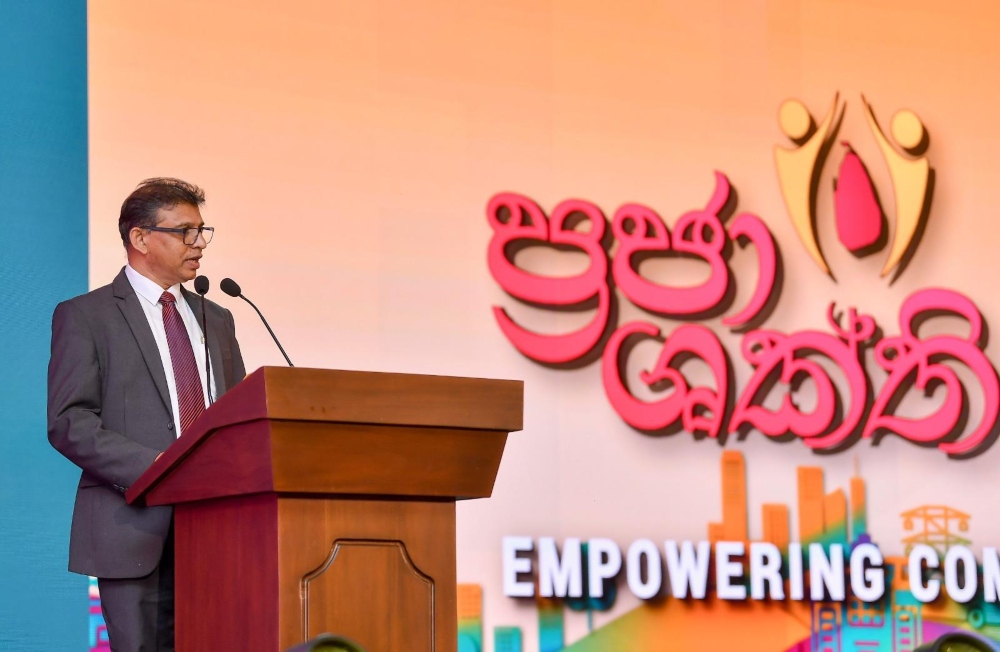
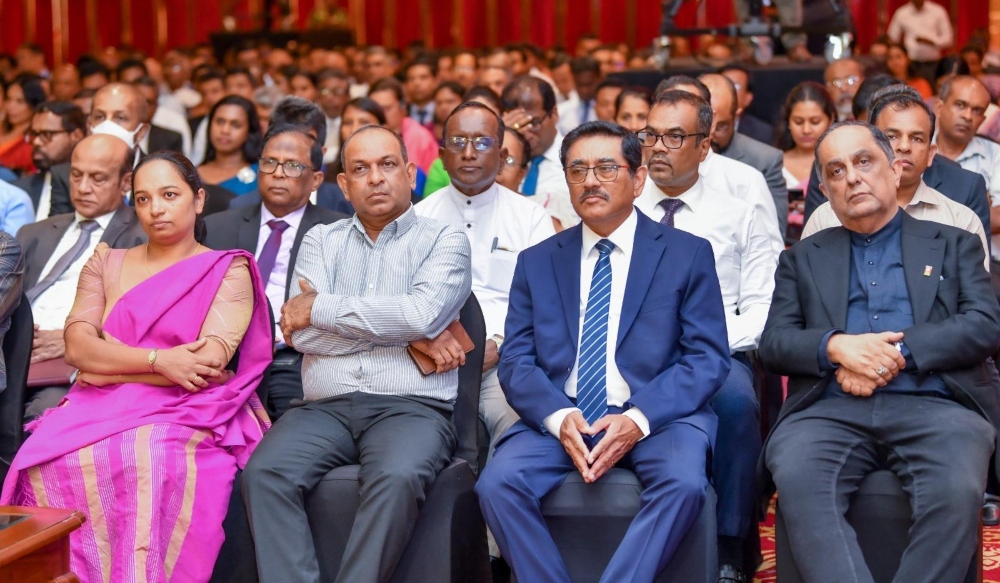
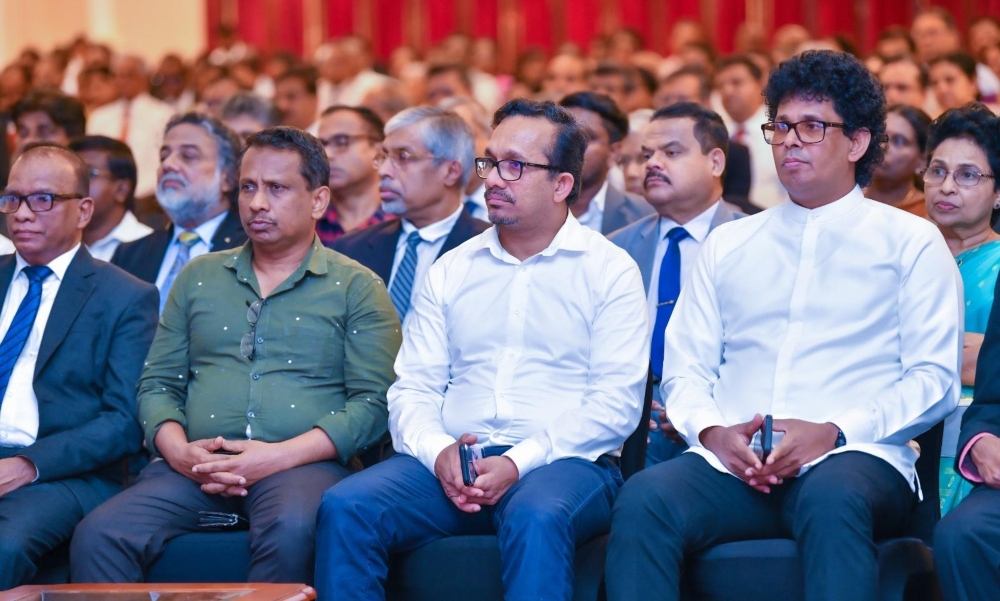
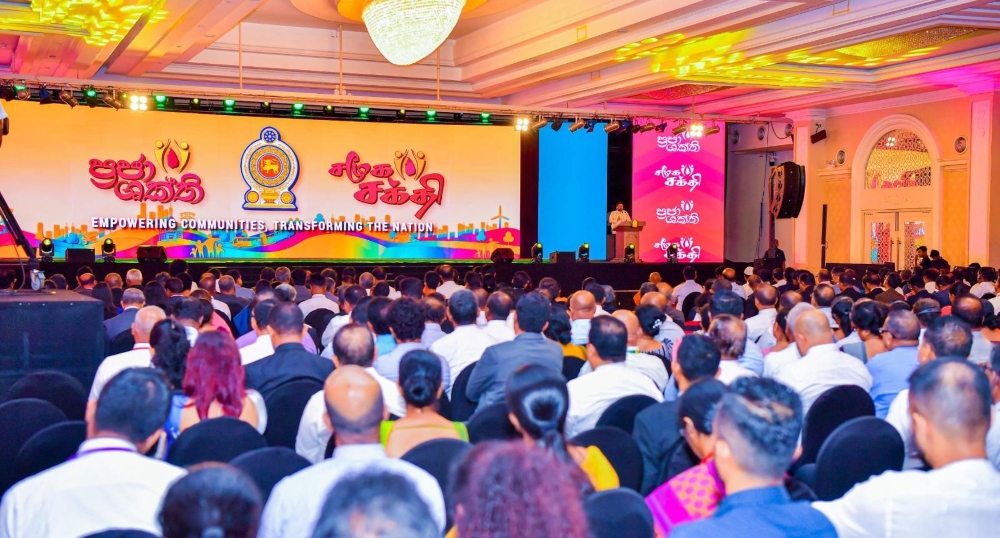
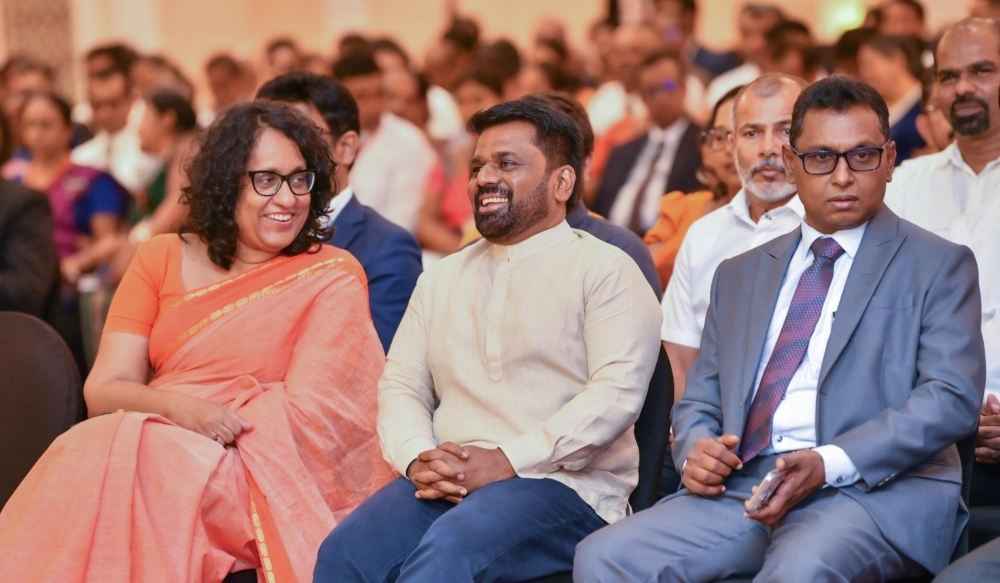
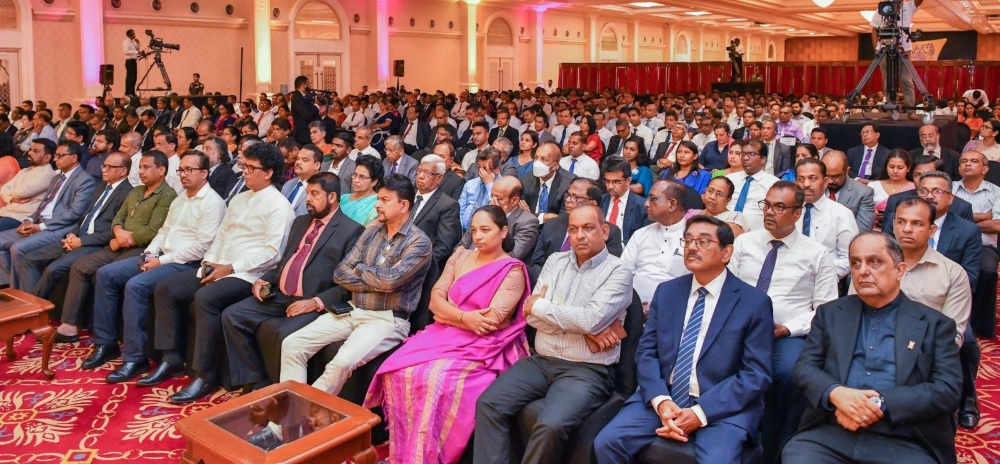
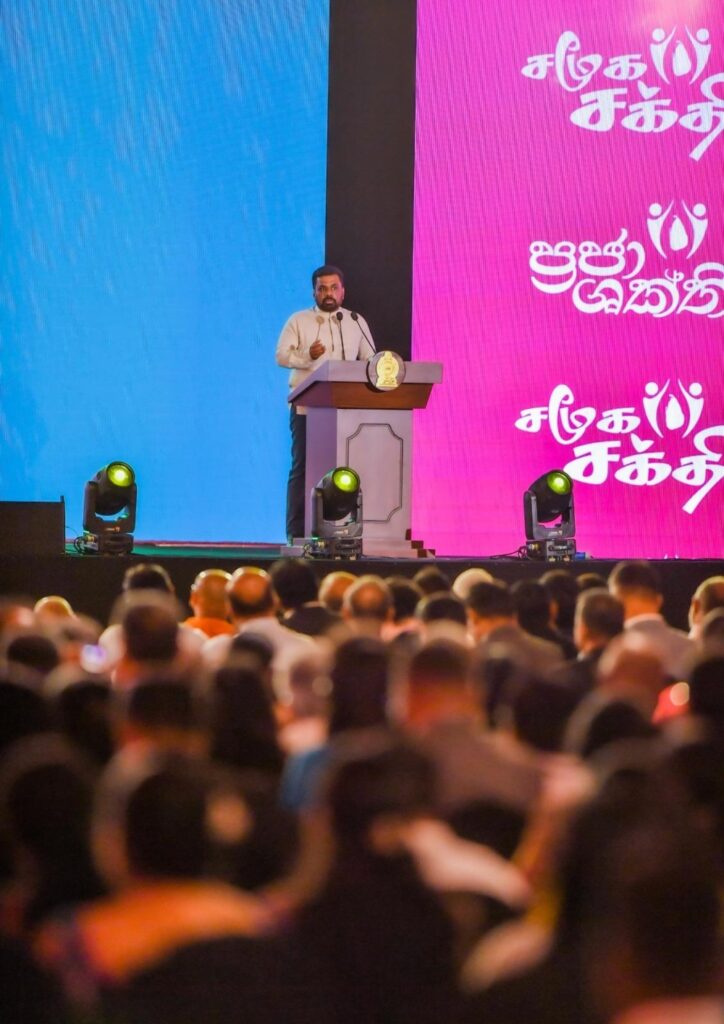
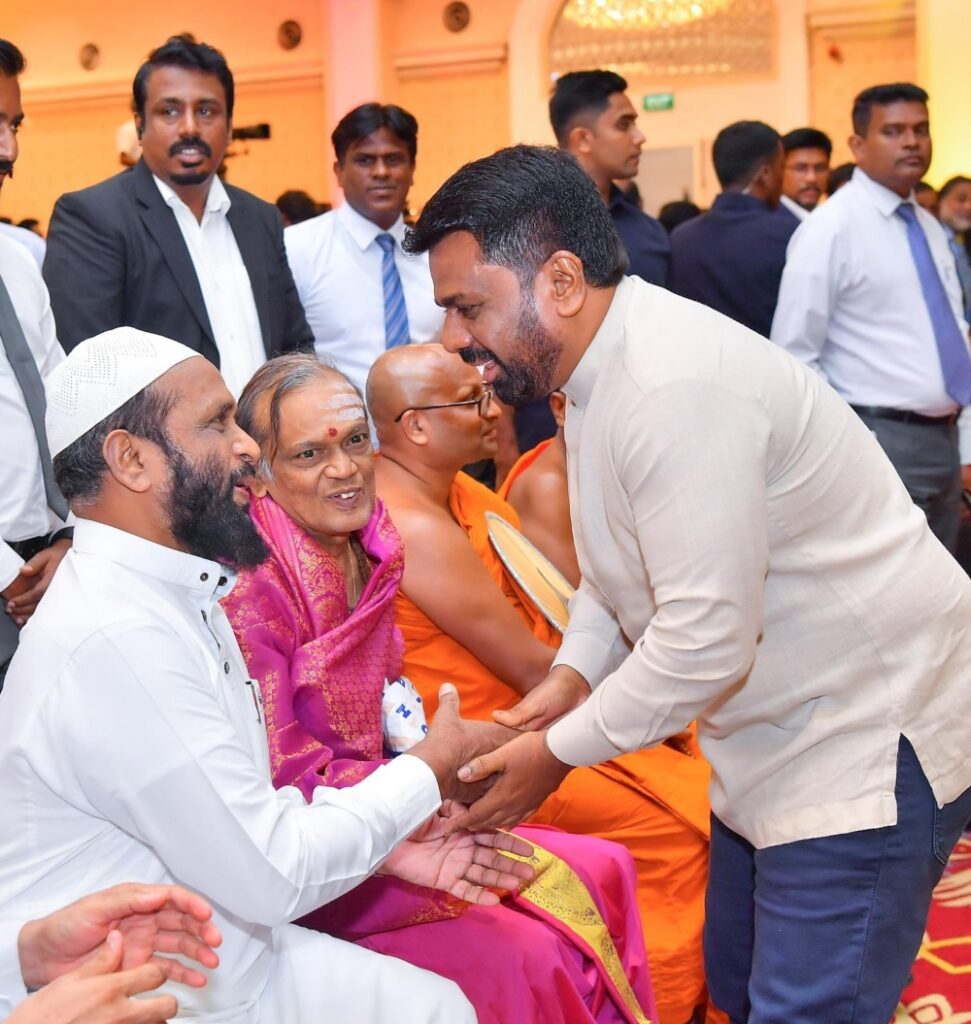
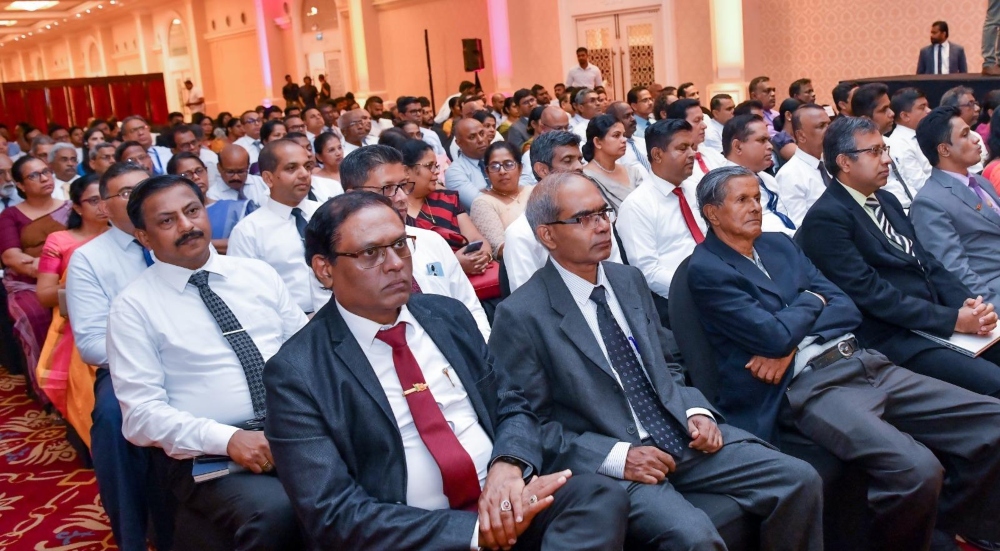

Gem & jewellery export revenue drops by 25% due to taxes!
8 DIGs in India








